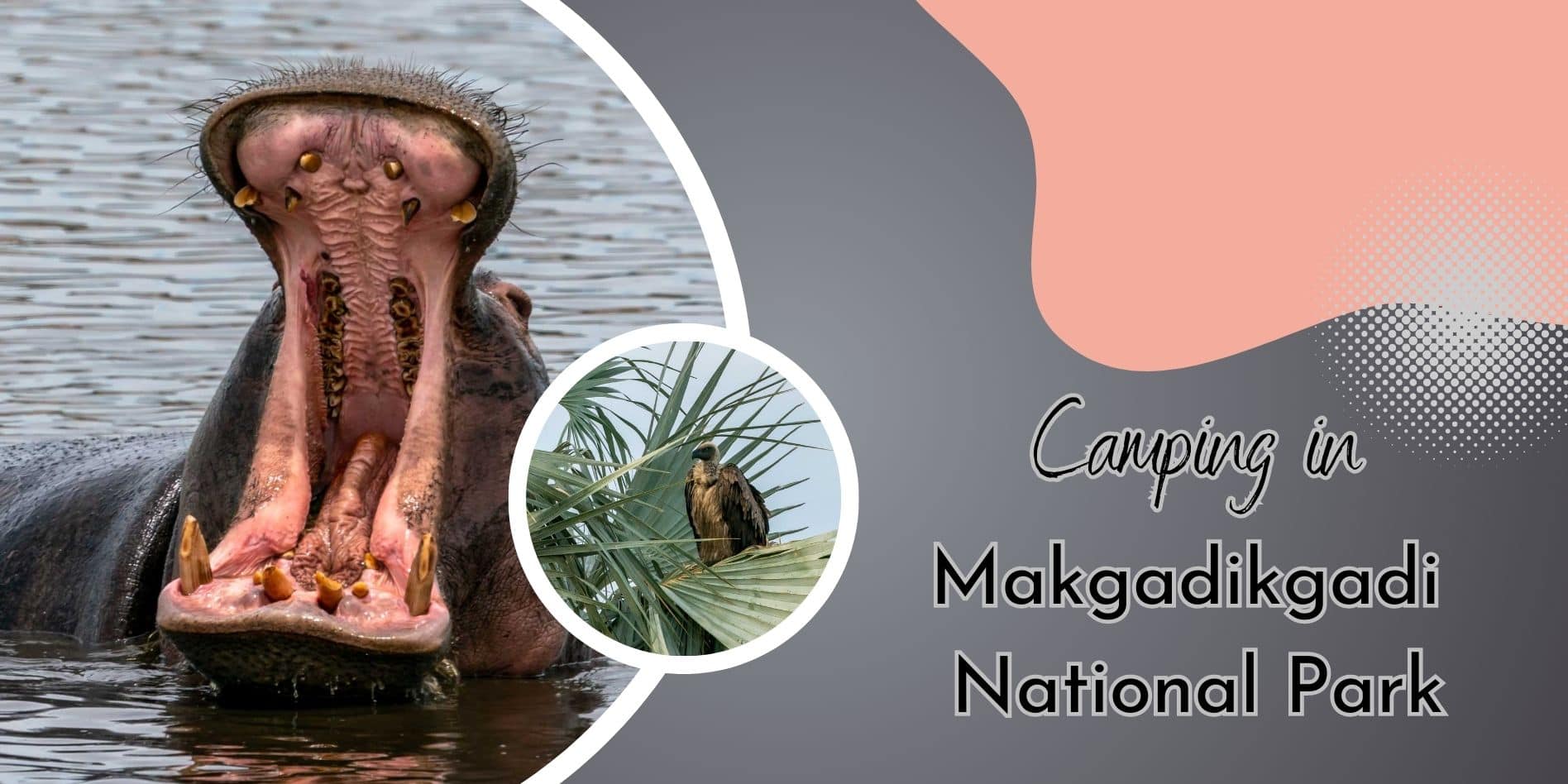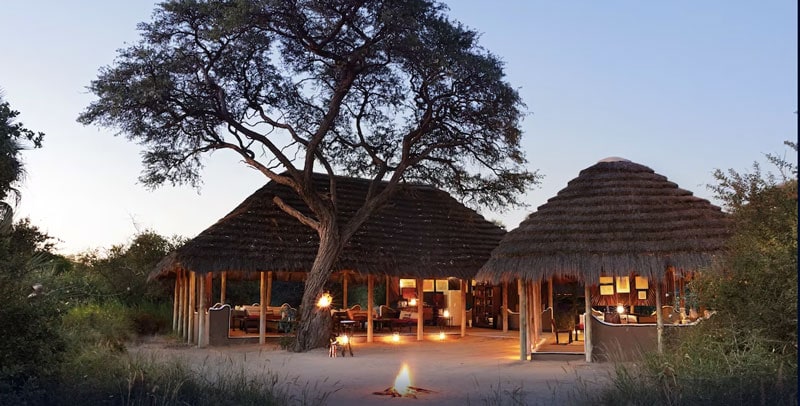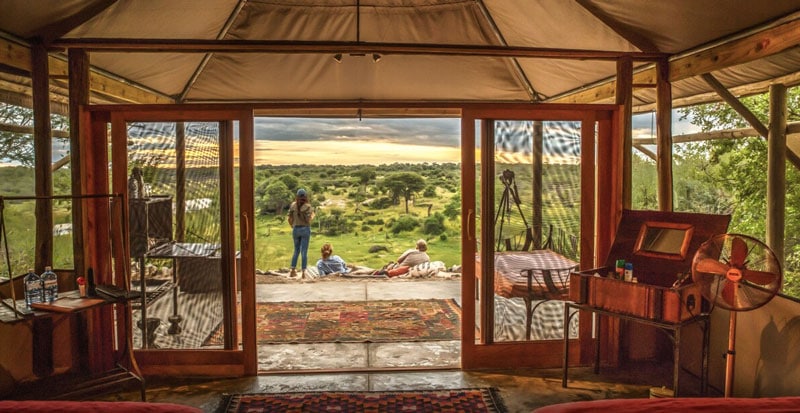Looking for information about Camping at Makgadikgadi Pans?
Then, you’re going to find all you need to know here.
Whether you are looking for exclusive camps in the area or you are on a Botswana camping trip and looking for places to set up camp, you’ll find what you need to know here.
We camped in Makgadikgadi Pans National Park in the rainy season as part of our Overlanding Botswana Trip. We’d been camping in Nxai Pan, part of the northern Makgadikgadi, and this was our next camping spot, just a short distance away.
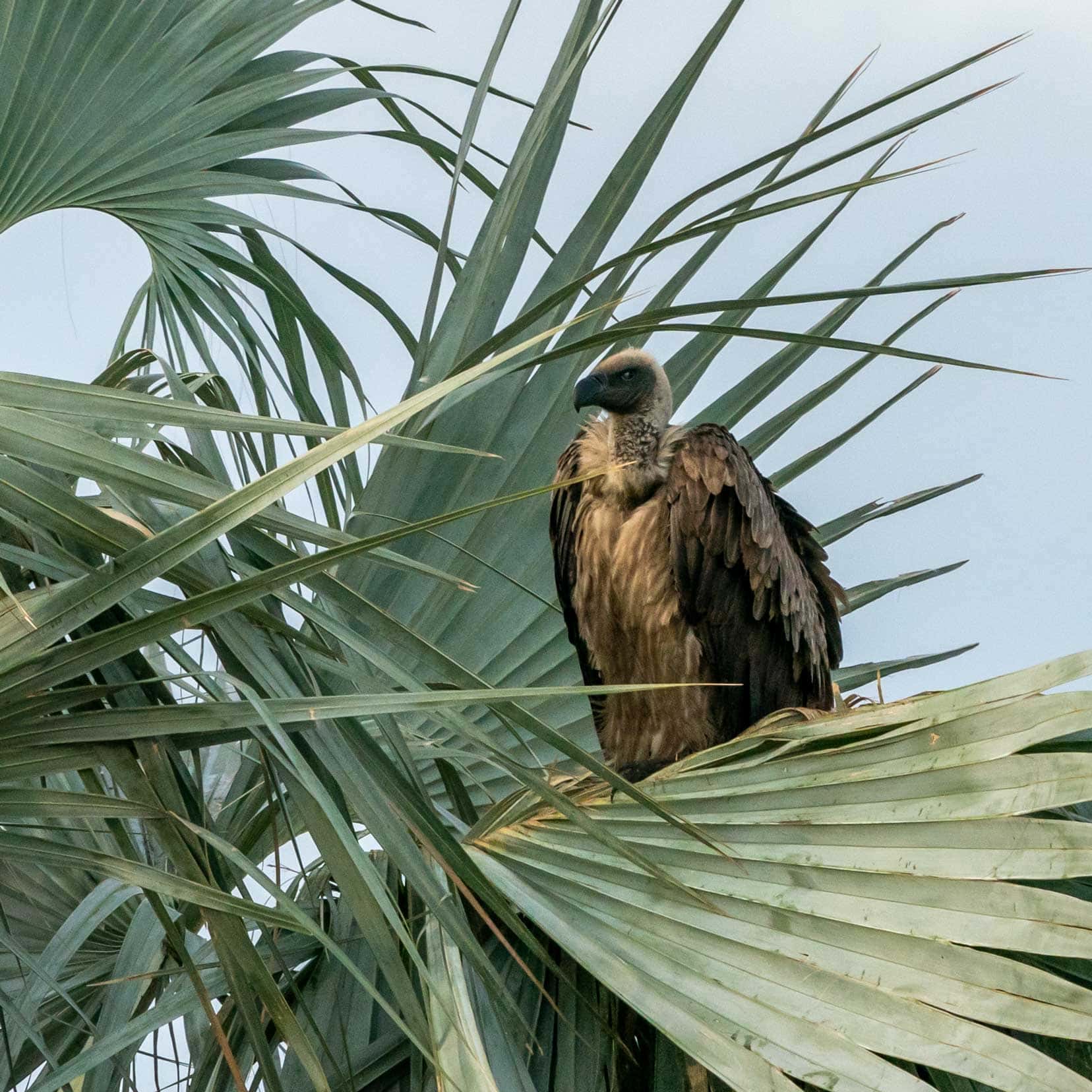
⛺️ What’s Included In This Makgadikgadi Pans Camping Article
- Camping options at Makgadikgadi
- An interactive Map showing camping options
- Our experience of camping in the Makgadikgadi Pans
- Wildlife in Makgadikgadi Pans National Park
- Information about the Makgadikgadi Pans
- How to get to Makgadikgadi Pans National Park
- Driving in Mkgadikgadi Pans National Park
(Click a link above to jump ahead or browse below)
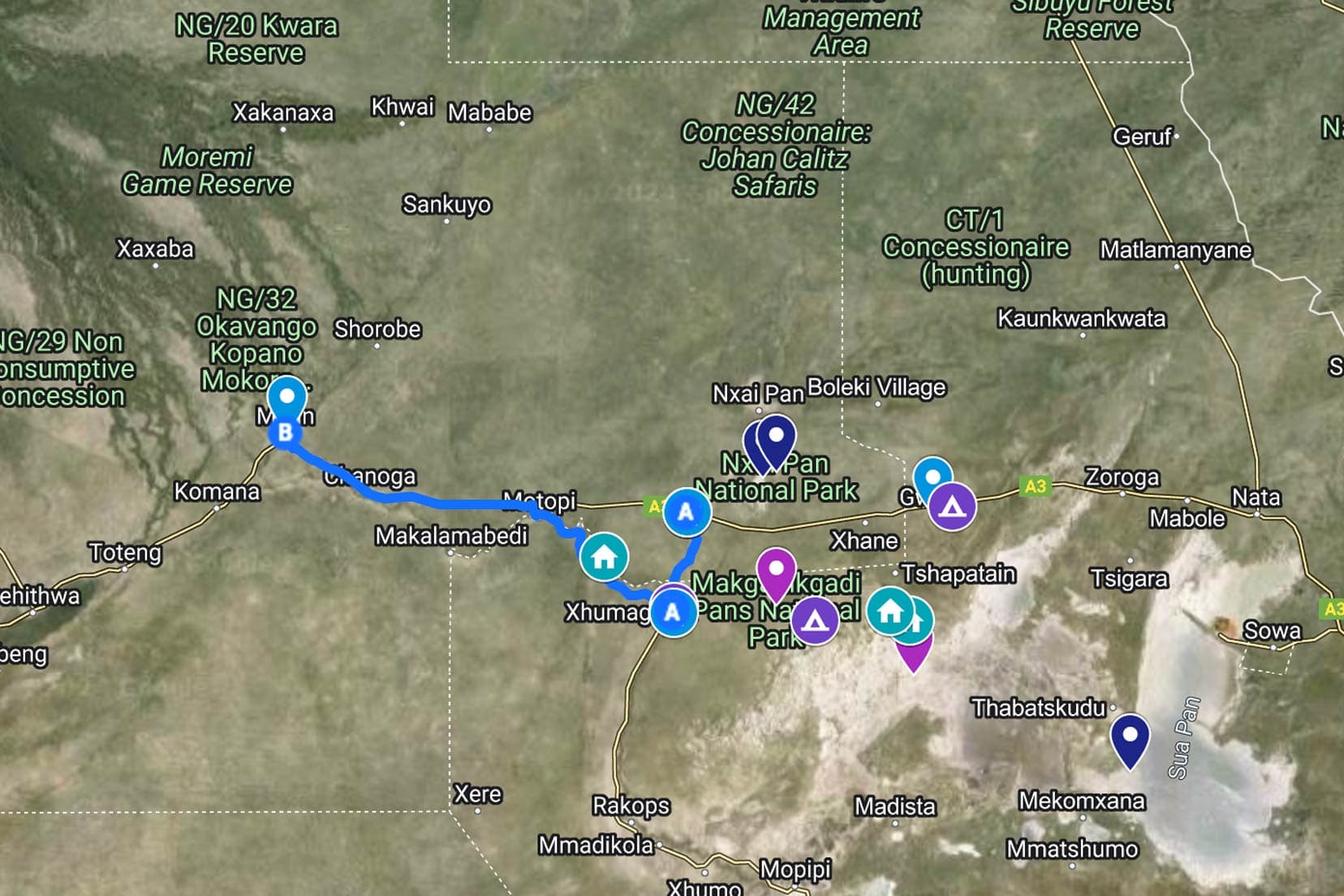
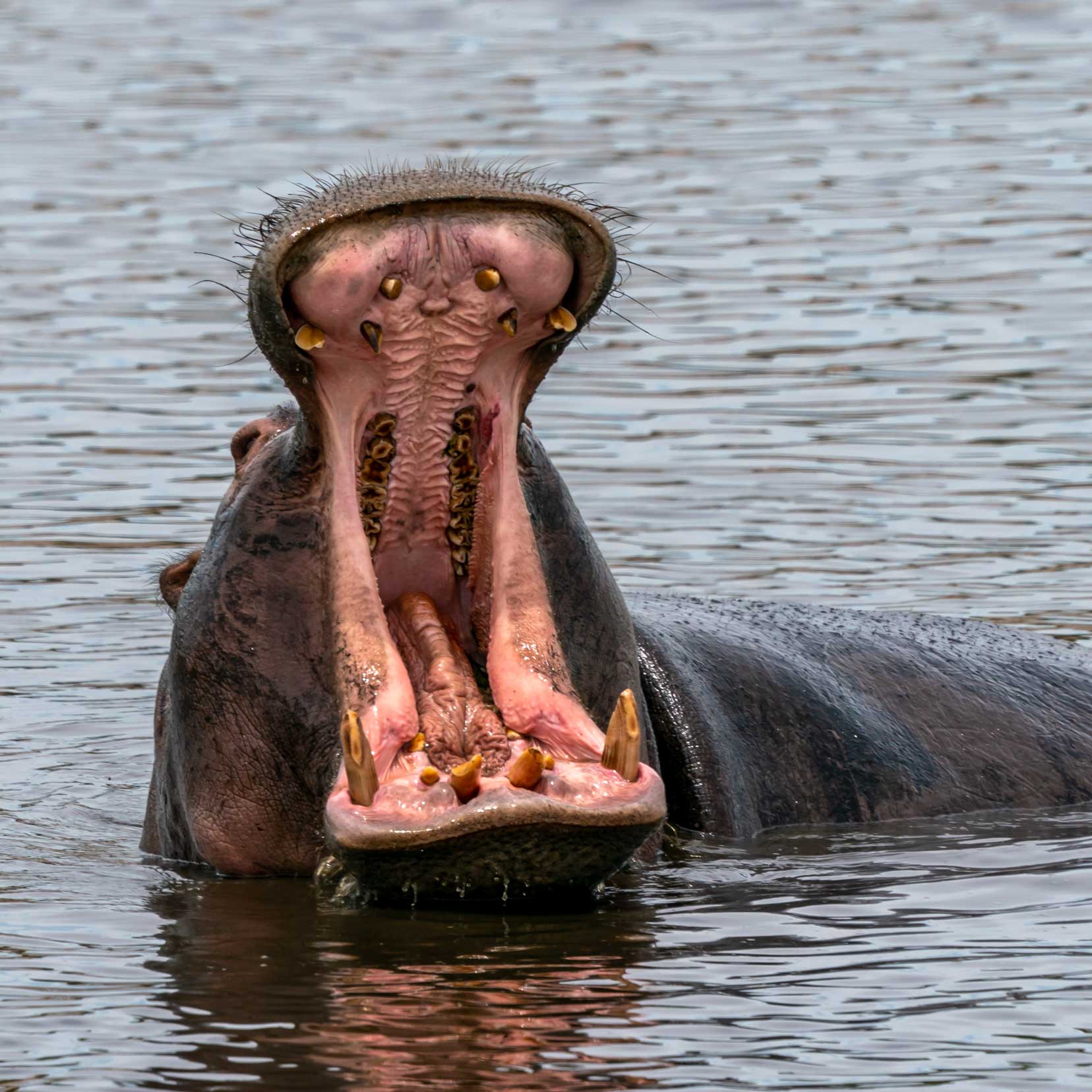
Map: Makgadikgadi Pans Camping
How To Use This Makgadikgadi Pans Camping Map
To use this map, expand it using the square symbol on the top right-hand side, and you will find the key on the left-hand side. By clicking each location, you will find extra information.
To save the map and use it in Google Maps:
- Click the star on the top right in the key
- Open Google Maps
- Go to the menu on the right-hand side (three horizontal lines)
- In the drop-down menu, click Your Places
- A menu will appear under the blue header section; click Maps
- Click on the saved Makgadikgadi map
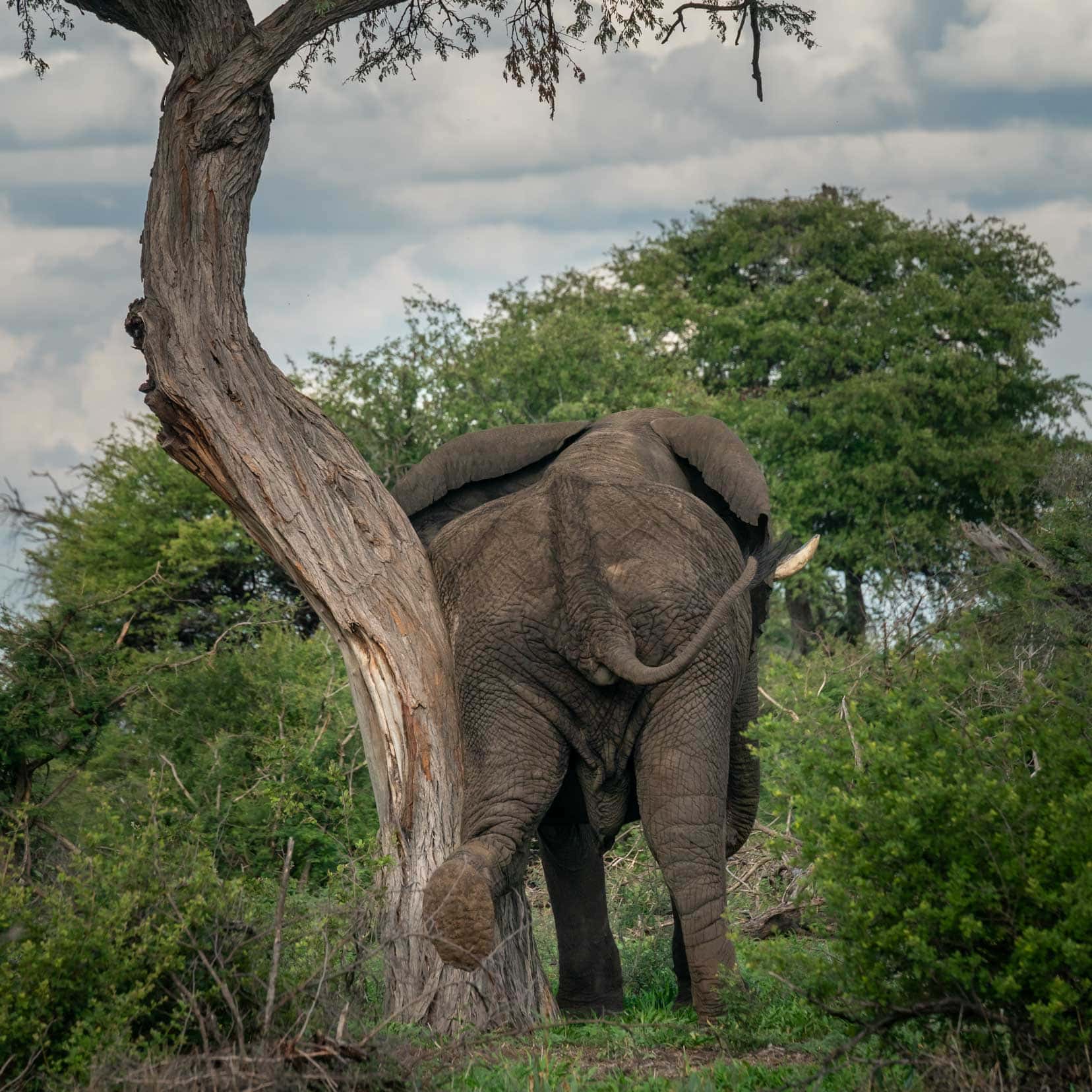
Planning a Trip to Botswana?
- 🚗 Hiring a car? We recommend getting a quote from DiscoverCars
- 🚐 Hiring a campervan? We recommend Motorhome Republic
- ⛑ Arranged your travel insurance? Compare quotes from World Nomads & Safetywing
- 🪪 Order your International Driver’s Licence online here
- 🏩 Booked your accommodation? We use Booking.com to find the best deals
- 🐾 Is someone pet-sitting for you? 🐾 We use and love TrustedHousesitters
- (Get 25% off at checkout for new memberships with our discount code: LIFEJOURNEY25)
Video: Taster of Makgadikgadi Pans National Park
Makgadikgadi Pans National Park Info
You’ll find the Makgadikgadi Pans National Park in the central-eastern area of Botswana in Southern Africa. They are the largest salt pans in the world and are on the UNESCO Tentative List. They also once formed one of the largest prehistoric lakes in the world.
The area is made up of numerous pans, with the main ones being Ntwetwe, Sowa, Kudiakam, Nxai and Kaucaca Pans.
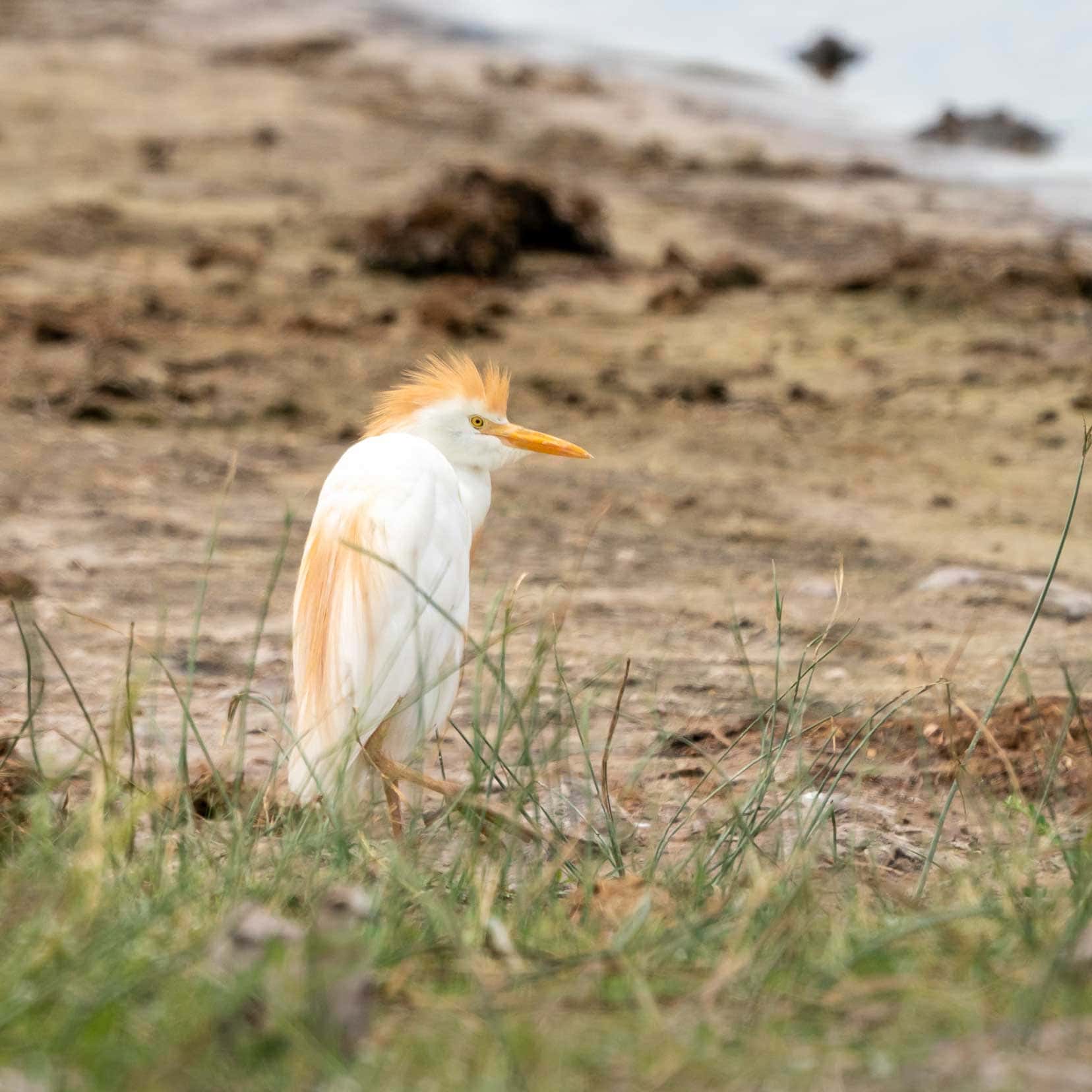
The Makgadikgadi Pans National Park makes up about a quarter of the Makgadikgadi area and includes the western side of the Ntwetwe Pan as well as vast grasslands and acacia woodland.
As you can see from the map below – the park’s northern boundary is the Nxai Pan National Park (also part of the Makgadikgadi Pans area).
The main road from Maun to Nata is the only thing separating the two. We’d recommend including Nxai Pan on your Botswana itinerary as well to get a varied view of the landscapes.
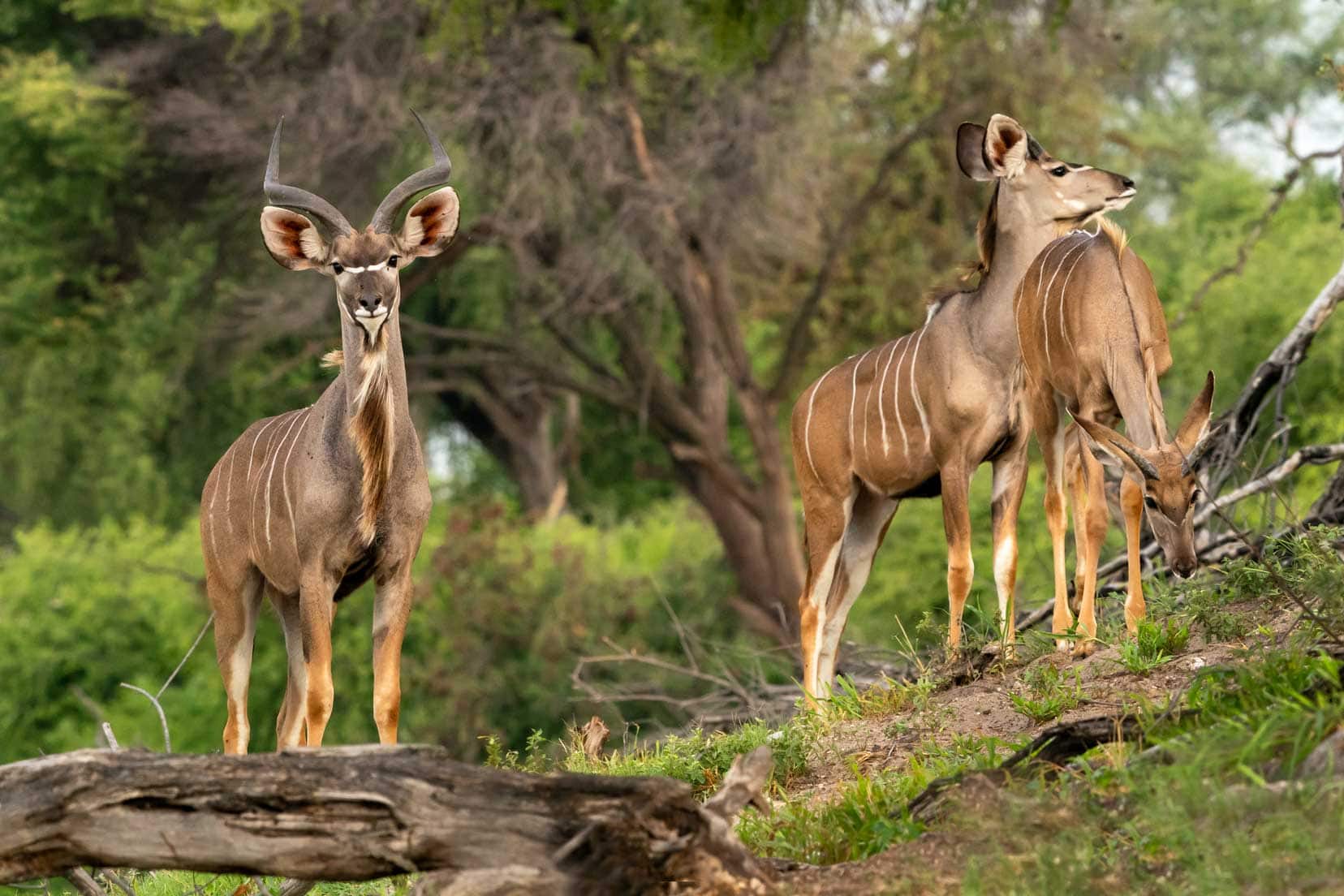
The Landscape and Seasons of the Makgadikgadi Pans National Park
The national park is characterized by its vast, flat expanses of salt pans, interspersed with grasslands and scattered islands.
During the dry season, the landscape transforms into a shimmering expanse of salt, providing an otherworldly and surreal atmosphere.
However, when the rains arrive, the pans are flooded, attracting various wildlife and bird species and transforming the area into a thriving ecosystem.
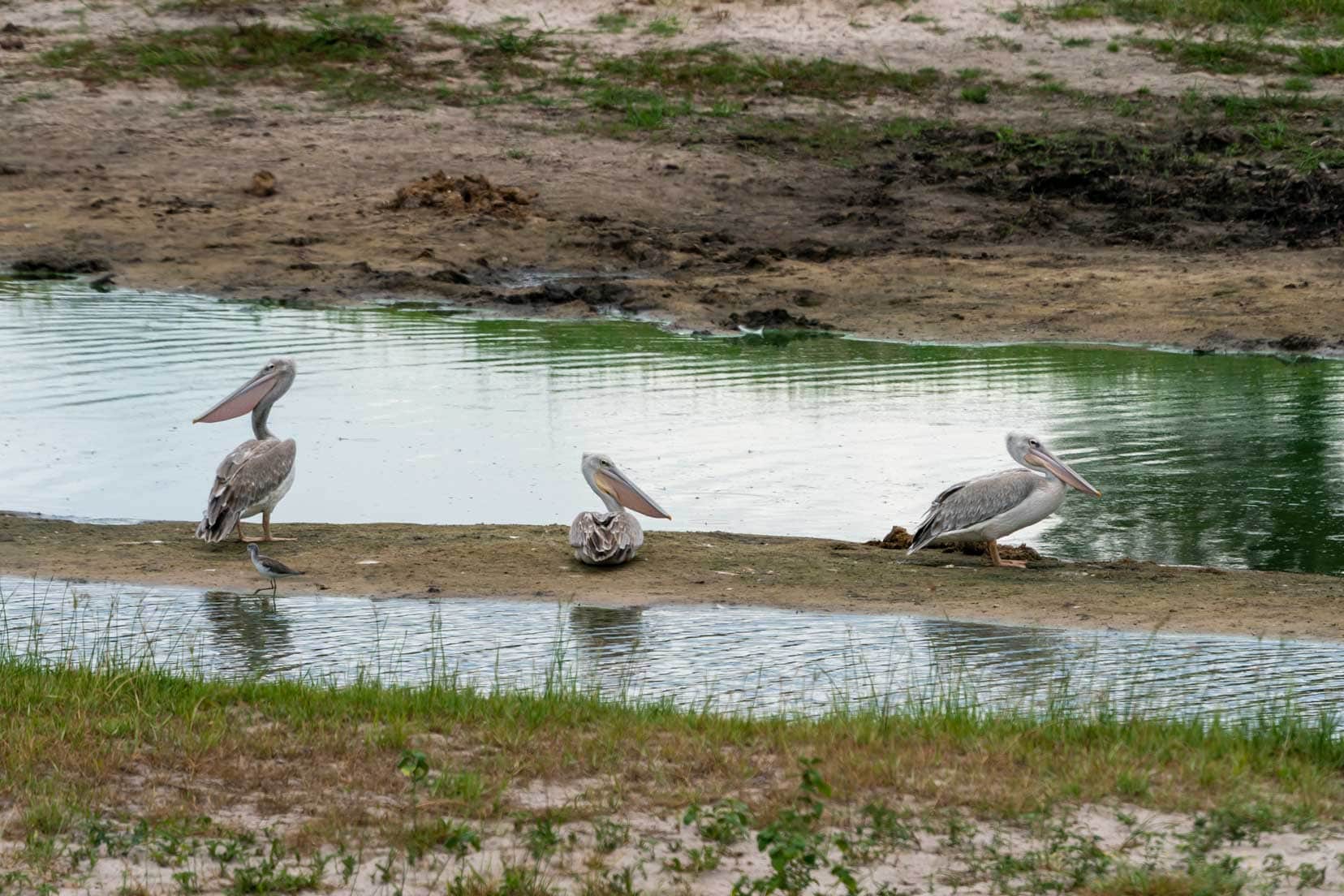
The park is home to diverse wildlife, including large herds of zebra and wildebeest that migrate to the region during the wet season. Other common sightings include elephants, giraffes, and various antelope species.
Additionally, the park is a vital habitat for migratory birds, with hundreds of species, especially flamingos, flocking to the eastern pans (Sowa and Nata Sanctuary) when the water is present.
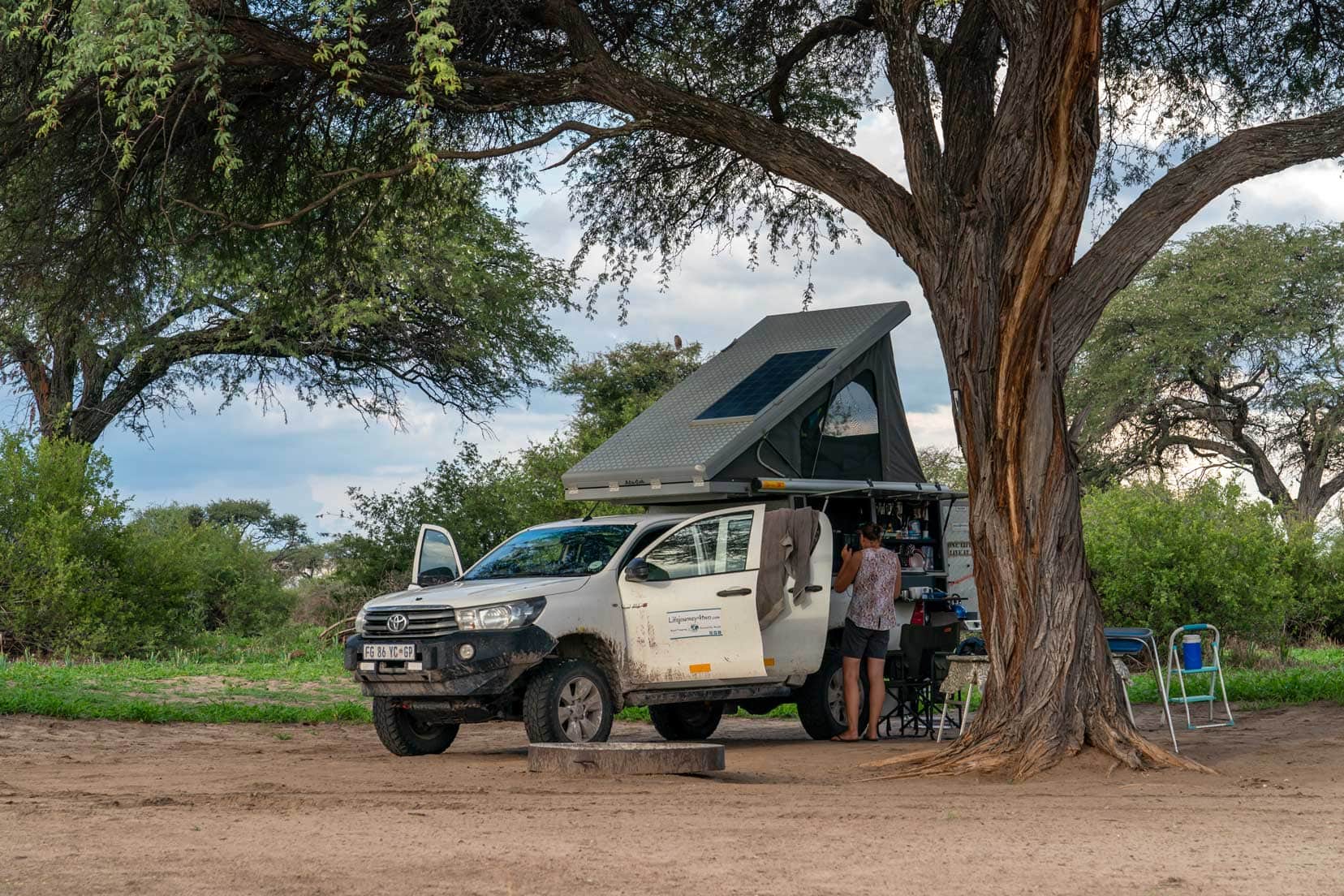
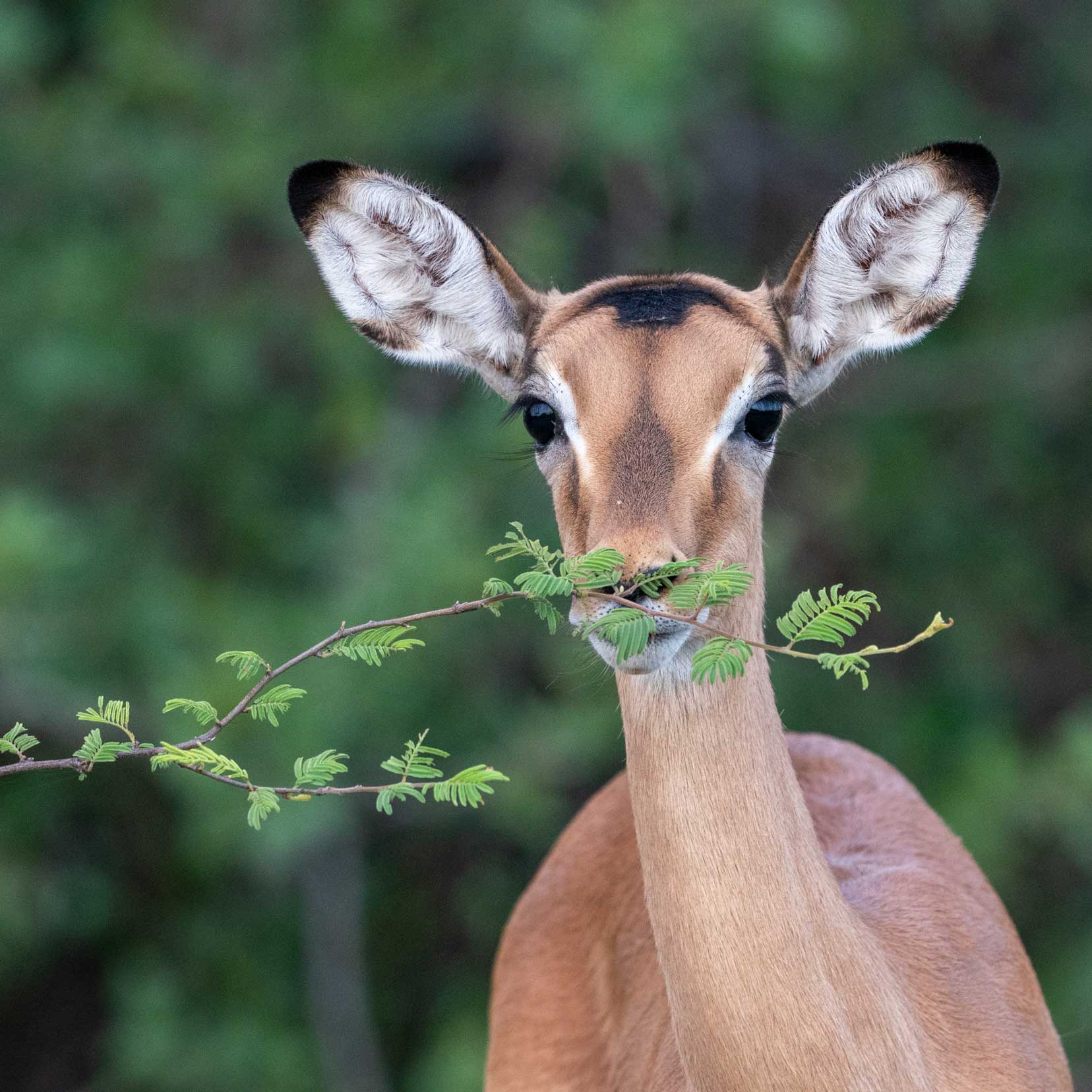
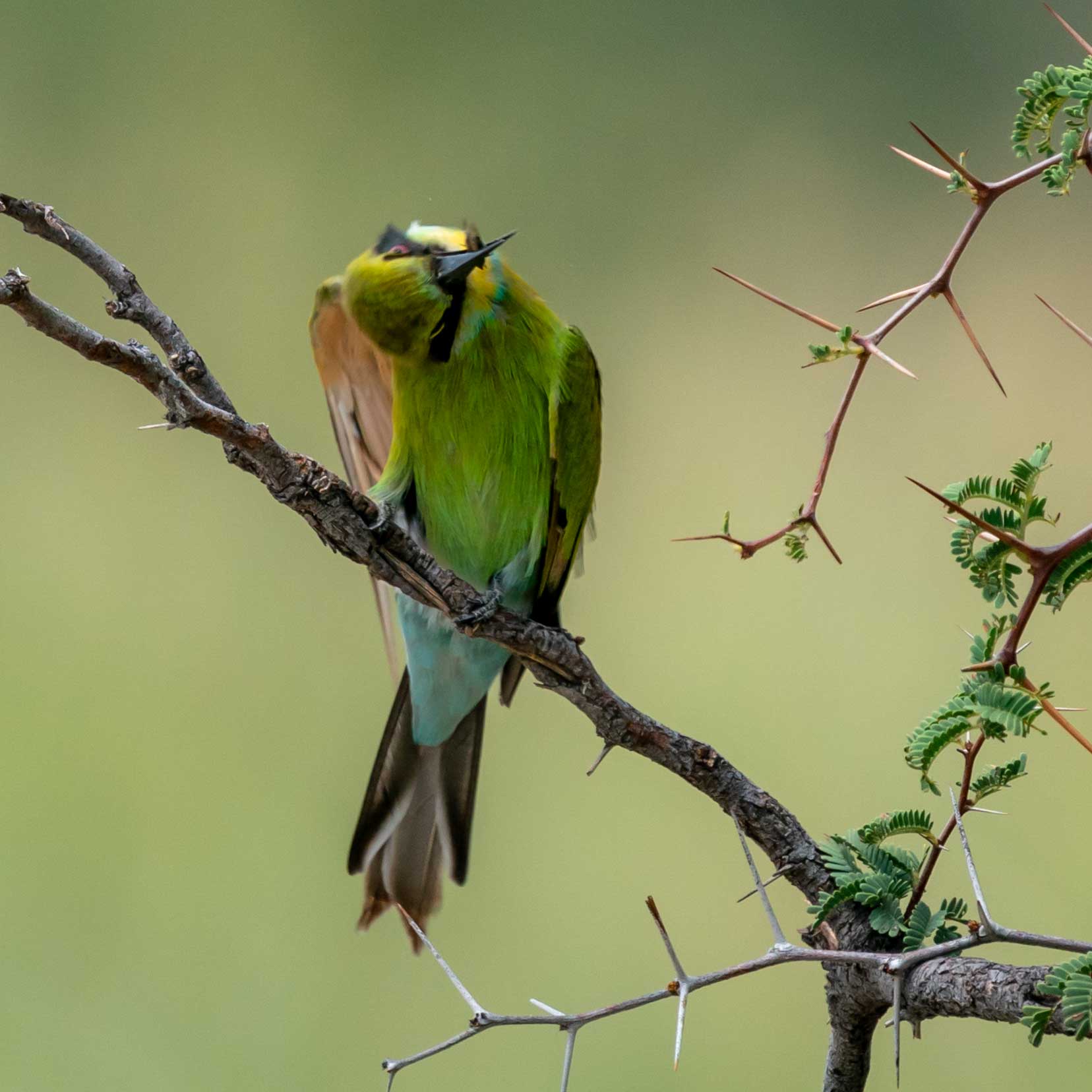
Camping in Makgadikgadi Pans National Park
There are a few accommodation options available to you for camping in the Makgadikgadi Pans.
Tree Island Camp
Tree Island Camp is a Department of Wildlife of National Parks (DWNP) run campsite on the eastern side of Mkgadikgadi (see map).
The camp has basic facilities: a drop toilet and a fire pit. There are three sites spaced about 50 metres apart. This is a good camp to choose if you want to experience the remoteness of the Makgadikgadi.
Khumaga (Kumaga / Xumaga Camp)
We stayed at the main campsite in Makgadikgadi Pans National Park, Khmaga Campsite (Kumaga / Xumaga Camp)
Khumaga campsite is situated on the banks of the Boteti River. However, when we were there in early February, the river wasn’t a river; it was a dry riverbed with sparse pools.
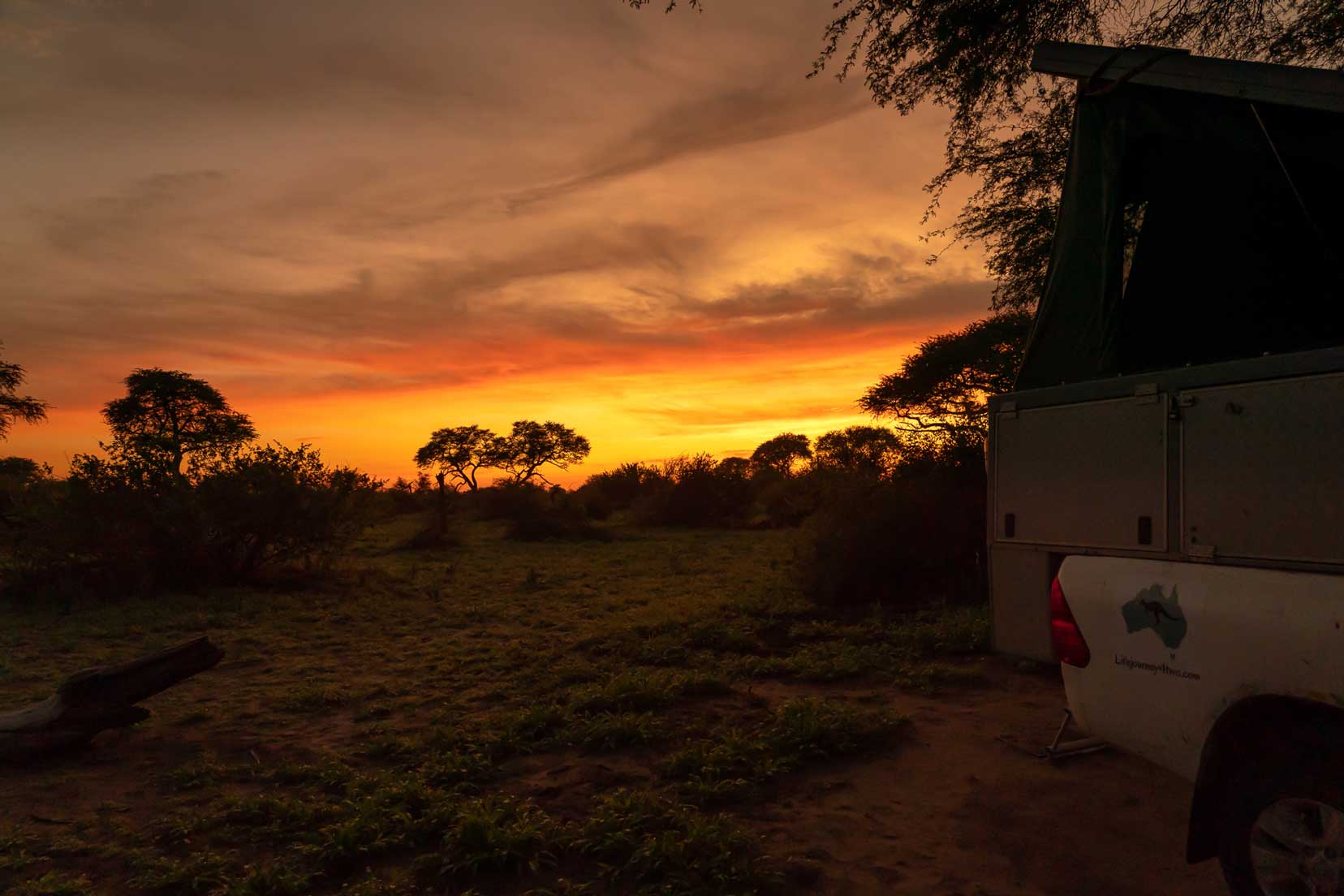
The Khumaga campsites consist of 10 pitches and two ablution blocks, which were clean and well looked after. Each site had a rubbish bin and a fire pit.
The sites also have bore water, but we were told it wasn’t suitable for either drinking or cooking. Therefore, make sure you have enough water for your trip (and extra in case of emergency).
In our opinion, the best campsite, near the edge of the camp, is no.10. It doesn’t have a view of the riverbed, but it has a large shady tree and is farthest away from the other sites, so it’s the most private.
The camp is run by SKL Camps: [email protected]
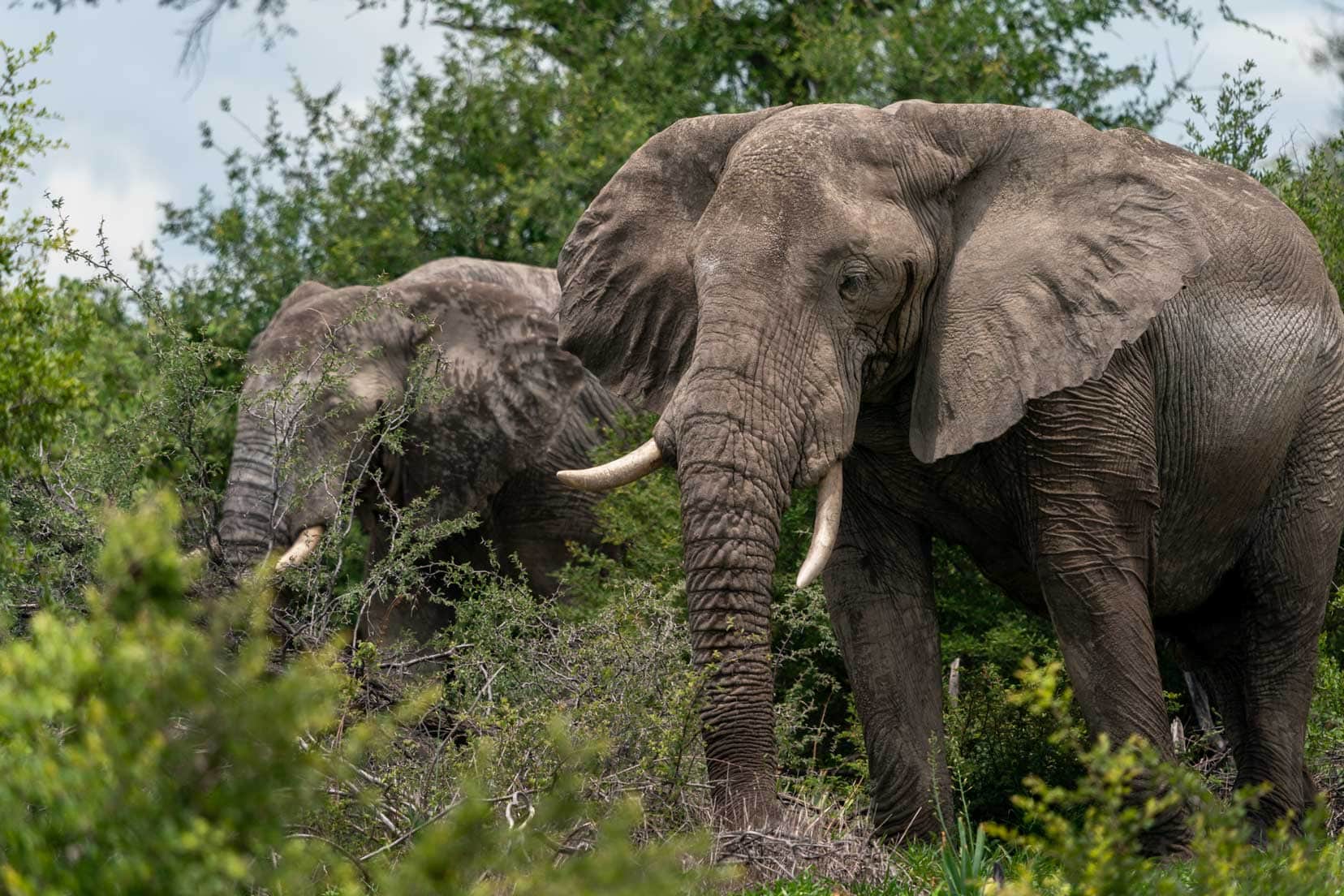
Download our FREE printable road trip planner to take the hassle out of planning your Africa overlanding adventure.
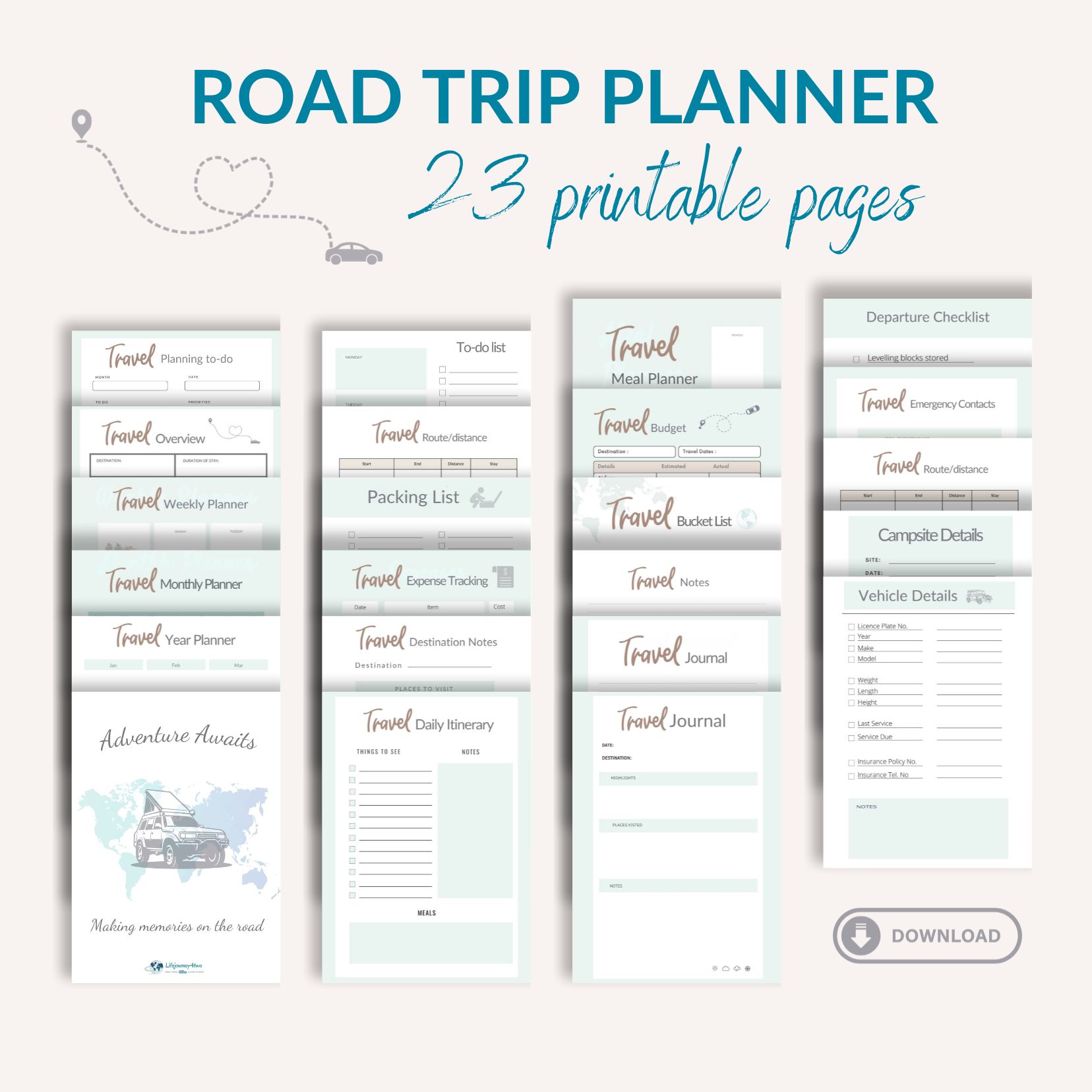
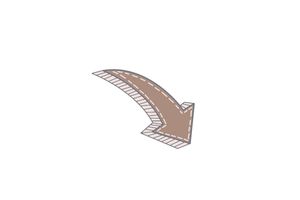
Exclusive Camps in Makgadikgadi
Most of the private camps in Makgadikgadi also offer guided safaris, San bushman experiences, night drives, birdwatching and visits to a meerkat colony, and other seasonal activities.
The most popular in the area include the following:
Planet Baobab
Planet Baobab has both accommodation and a campsite.
We camped here for a few days and enjoyed the lodge’s supersized swimming pool. It was a sweltering 40 degrees Celsius, so hanging out by the pool all day while catching up on writing (we could pick up an internet signal by the pool) was a bonus.
There are several huge Baobabs here, as the name suggests, and one has a lovely hammock underneath.
The campsites are a short walk away from the lodge and restaurant, and the pool. Each site has a shaded area to sit under.
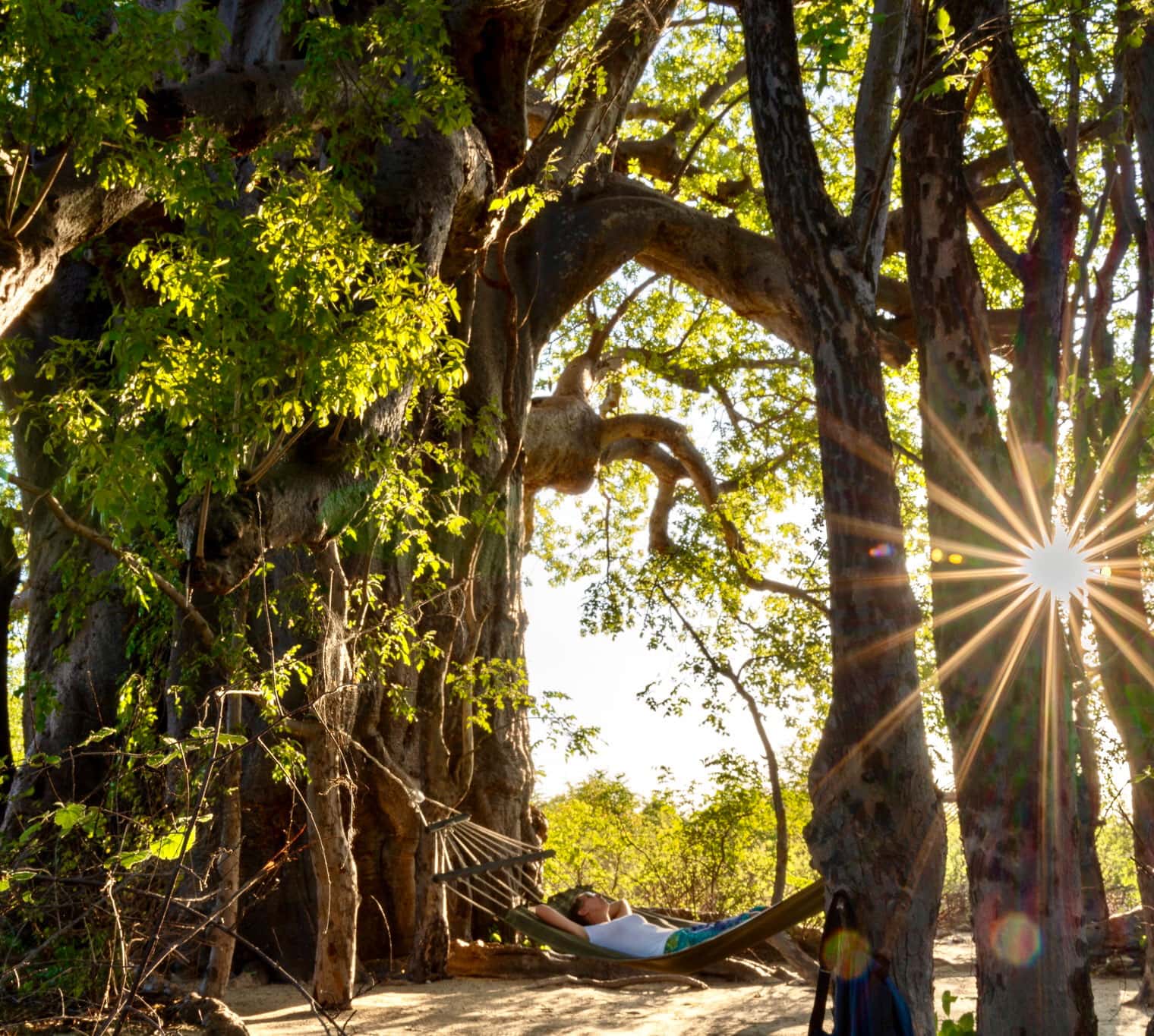
Jack’s Camp
Jack’s Camp is situated on the edge of the Makgadikgadi Pans. The decor is sumptuous and based on a luxury 1940s Victorian safari style.
Activities available at the camp include quad biking, bushman walks, classic desert game drives, meerkat visits and horse rides.
(The owners of Jack’s Camp opened a similar-themed tented camp, Duke’s Camp, in the Okavango Delta, and it was chosen as one of the top new hotels in 2023 by Travel and Leisure.)
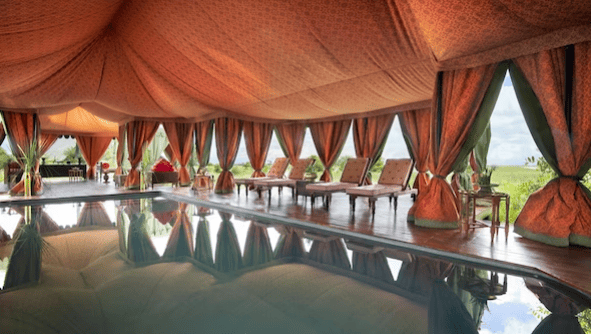
Jack’s Camp
✔️ 1940s Themed Tentalows
✔️ All-inclusive
Camp Kalahari
Camp Kalahari is an affordable base in Makgadikgadi. It’s set amongst date palms and acacia trees on Brown Hyena Island.
Camp Kalahari has 12 funky Meru tents that are perfect for families, groups and couples.
Meno A Kwena
Meno A Kwena, just an hour’s drive from Maun, this camp sits on the Boteti River overlooking the Makgadikgadi Pans National Park. Guests can watch wildlife at the river below from the comfort of their private veranda.
Mobile Camping Safaris in Makgadikgadi
Another popular option is to participate in mobile camping safaris. These guided tours allow you to explore different areas of Botswana while providing all necessary camping equipment, including tents and meals.
Mobile camping safaris offer a more immersive experience, as you’ll have expert guides and support staff who will take care of logistics and provide valuable insights into the wildlife and ecosystem.
This 17-day safari involves limited participation camping and will give you a real bush camping experience in the best parts of Botswana, including Makgadikgadi.
💡Our Tip: If you are short on time, then check out our Botswana photo safari tours, ranging from 9 to 13 days.
Botswana Leopard Trail & Kalahari
- Starts: Maun, Botswana
- Finishes: Victoria Falls, Zimbabwe
- Type: Small Group Tour (Max 12 – can request Private Tour)
This tour includes:
- 15 nights of limited participation camping on a twin share tent basis – 1 night in a lodge
- Explore the Okavango Delta on mokoro and motorboat excursions
- Search for wildlife in the Moremi Game Reserve
- Marvel at the huge herds of elephants in Chobe National Park
- Learn about the fascinating San Bushman culture
- Traverse the dunes and salt pans in the Central Kalahari Game Reserve
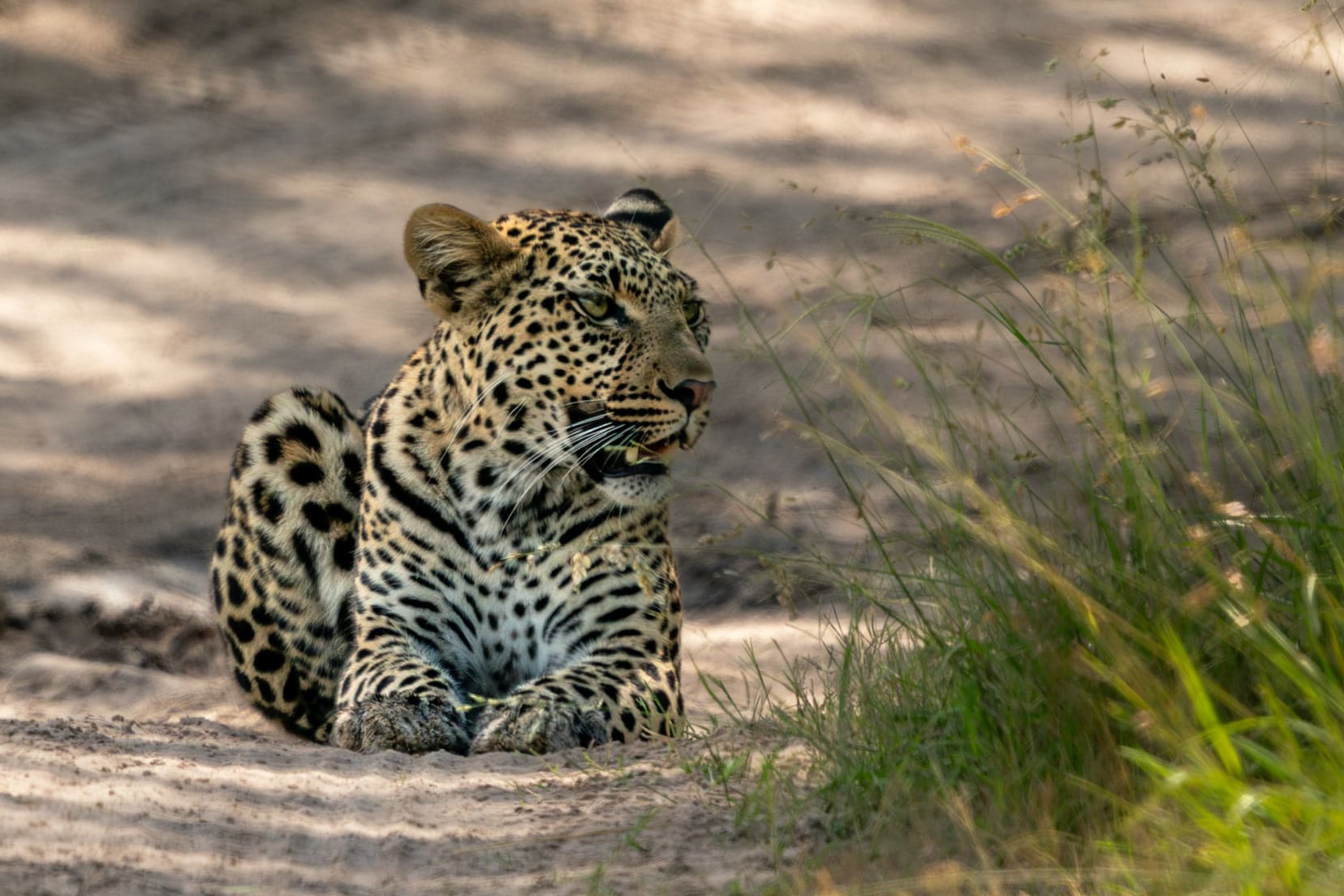
17-Day Botswana Leopard Trail & Kalahari
✔️ Central Kalahari, Makgadikgadi, Okavango, Moremi, Chobe, Victoria Falls
✔️ 16 breakfasts, 16 lunches and 14 dinners
✔️
⭐️ 5/5 Star Reviews | ⏰ 17 Days | 🐆 Book Here
Our Experience in Makgadikgadi National Park
As mentioned, we travelled to Makgadikgadi National Park, just after camping in the northern part of the Makgadikgadi region, Nxai Pan National Park.
Our initial planned itinerary had been to camp at Baines Baobab Camp (managed by the Xomae Group) on our way from Nxai Pan to Kumaga Camp in Makgadikgadi. Because of the rains, however, we weren’t able to reach Baines Baobabs.
We were also wanting to visit Kubu Island, but again, the tracks to the island were too flooded and muddy.
We’re planning on doing this route in the dry season next time, which is the best time to see the shimmering white expanses of the salt pans. And, the drier conditions make for much more favourable conditions to reach the campsites.
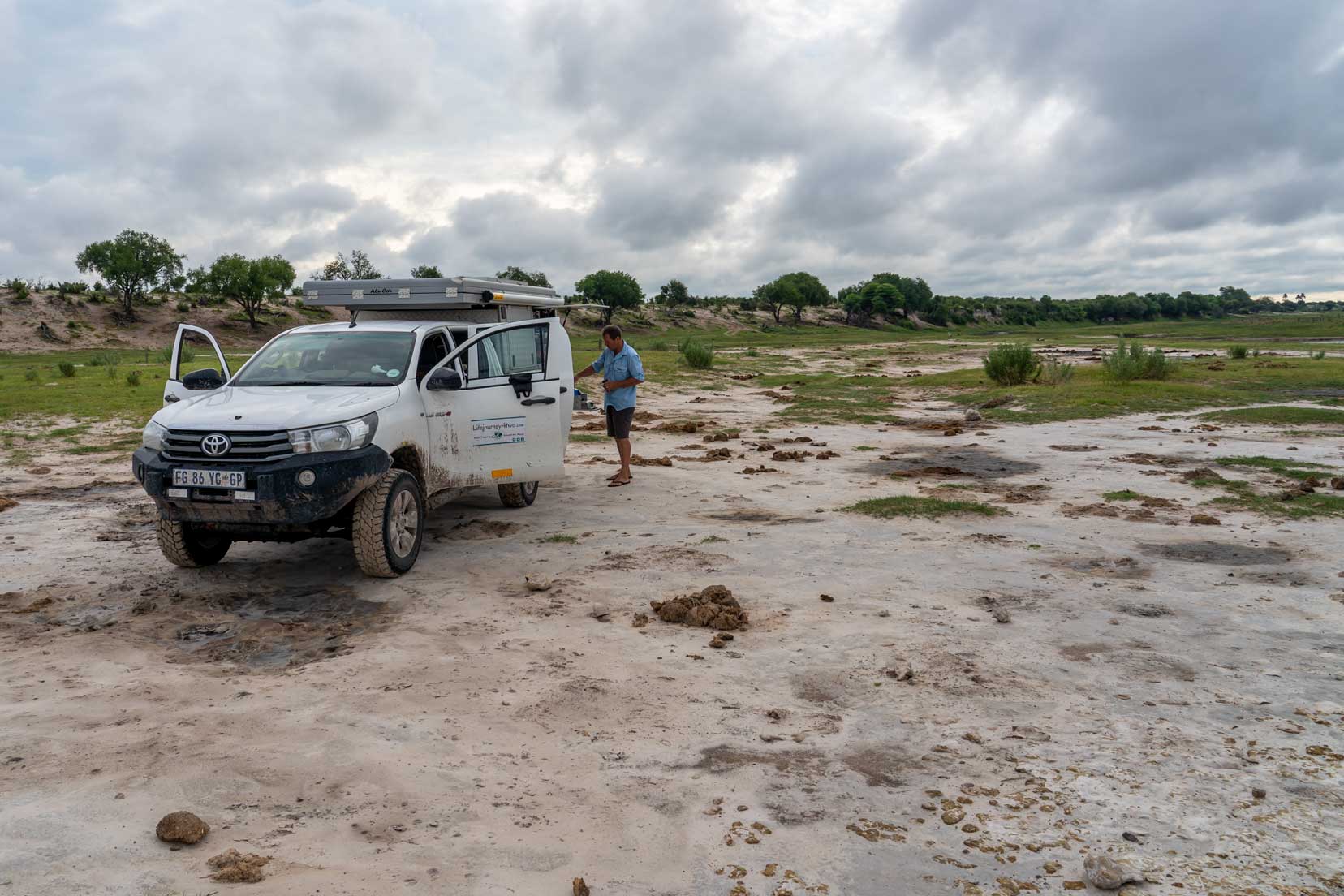
Our Self-Drive Safaris in Makgadikgadi Pans National Park
The Makgadikgadi self-drive aspect allows for a more personalized and intimate safari experience, as you can choose your own route and spend as much time as you want watching the wildlife.
When planning your safaris make sure you have all the necessary safari gear so that you can make the most of your trip.
We found most of the wildlife along the Boteti River, apart from the elephants that wandered through and around camp regularly.
We also saw plenty of hippo footprints in camp but the hippos were likely mainly visiting at night while we were fast asleep and safe in our rooftop tent.
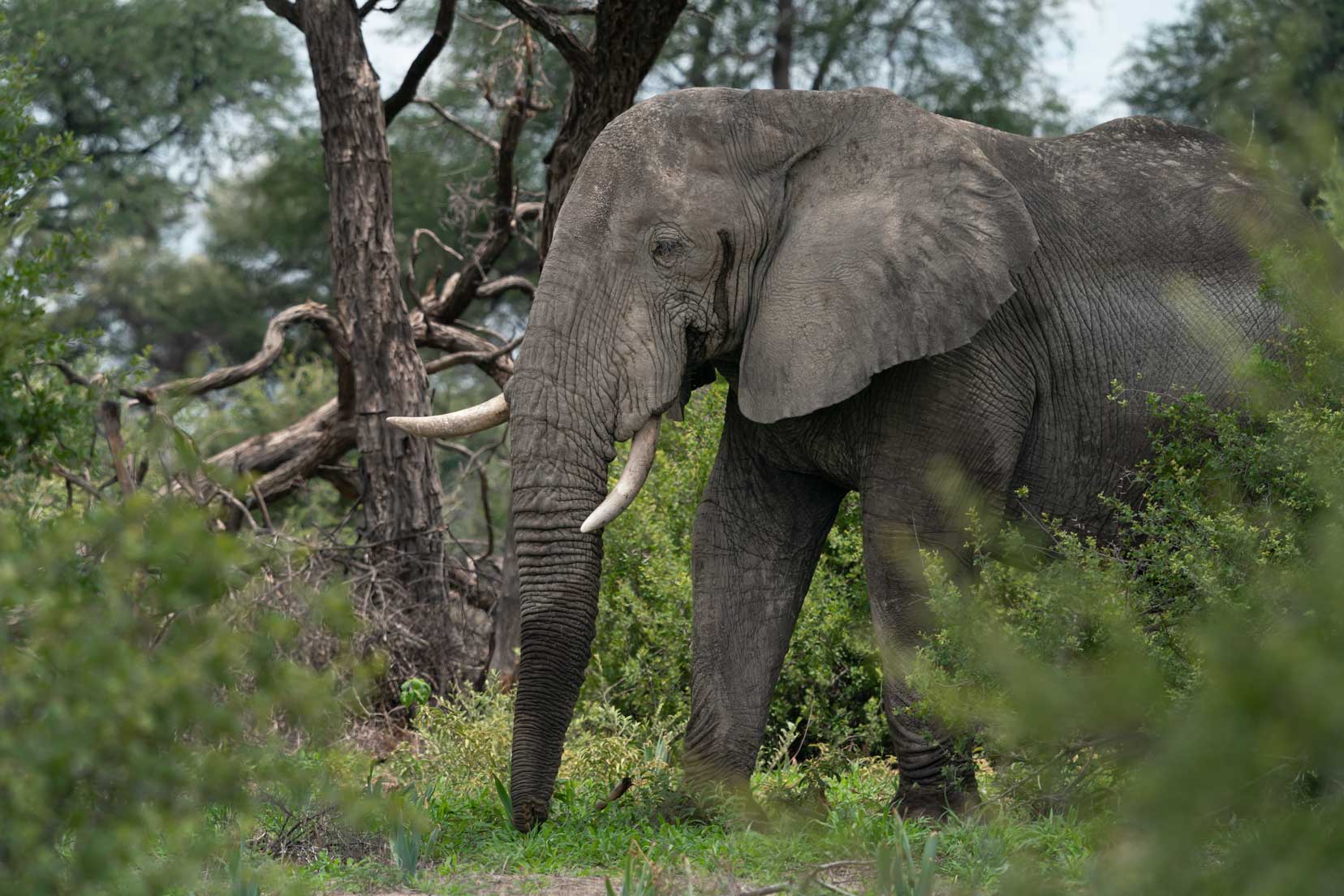
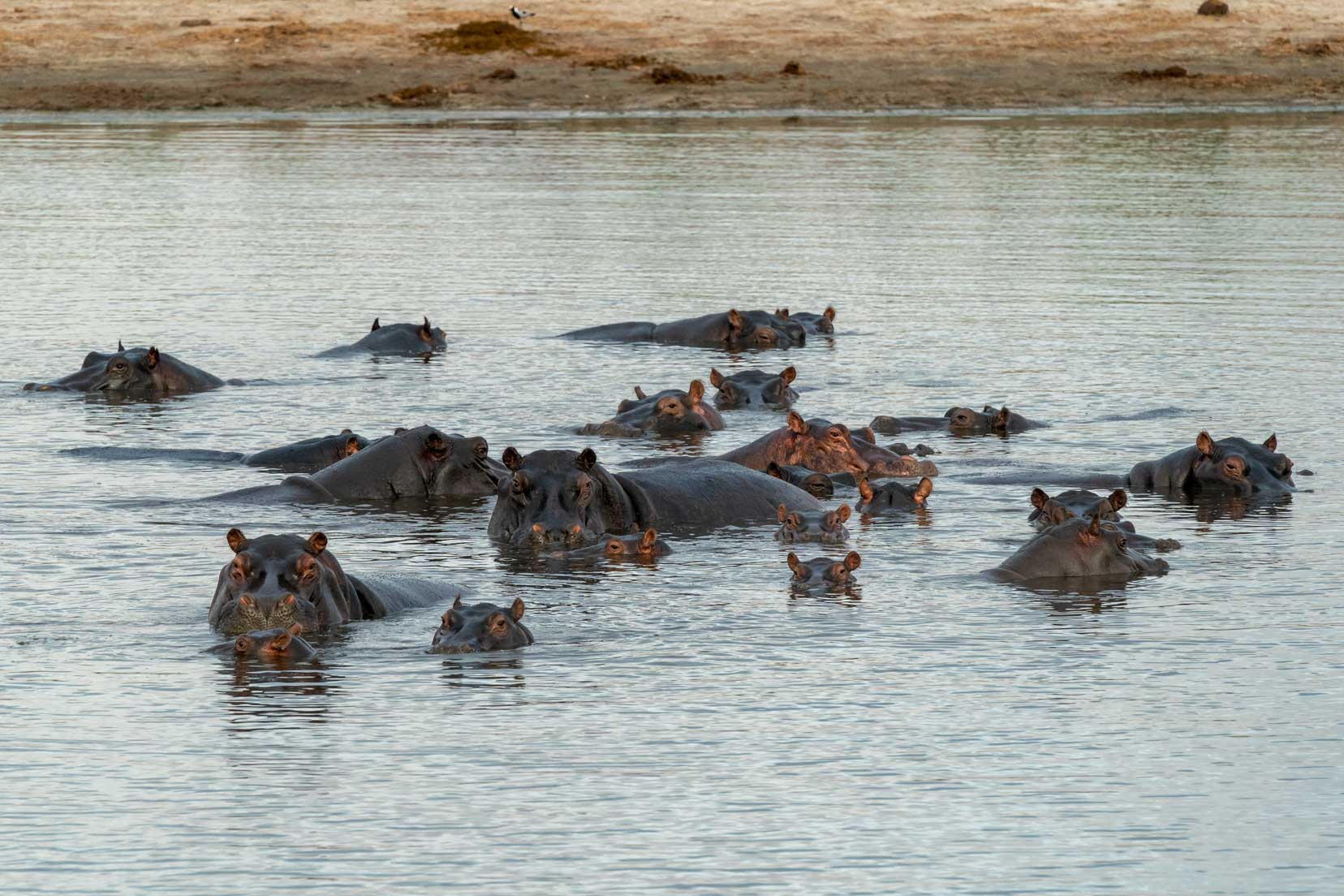
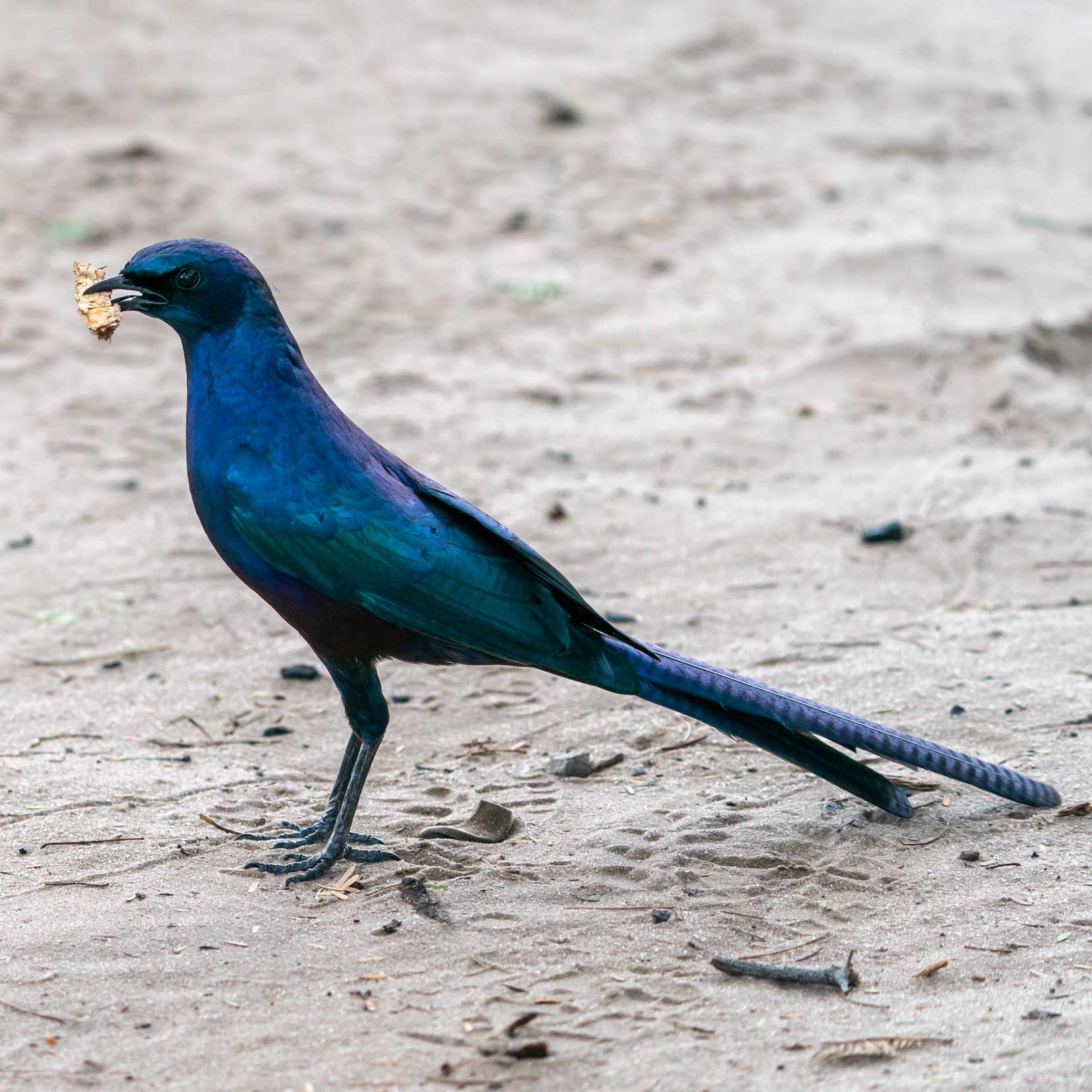
Game Viewing in the Makgadikgadi Pans Game Reserve
One of the main attractions, in the summer is the zebra migration in the Makgadikgadi area.
“The Chobe River to Nxai Pan National Park zebra migration is now the longest-known mammal movement in Africa. In fact, the round-trip, straight-line journey of over 300 miles outdistances the widely coveted and well-known seasonal wildebeest journey in the Serengeti ecosystem, which attracts thousands of tourists each year.” — National Geographic
When we were there in February we saw most of the zebra around Nxai Pan, but we have spoken to others who have seen plenty in Makgadikgadi National Park.
The below lists will give you an idea of the wildlife you might encounter in the park. We’ve broken them down into Likely and if you’re lucky and marked those that we saw with a tick.
For a detailed guide about different animals you might see on safari check out our guide on the iconic African animals found in Kruger.
Likely to see
- Zebra ✅
- Wildebeest ✅
- Hippo ✅
- Springbok ✅
- Impala ✅
- Gemsbok/oryx ✅
- Wildebeest ✅
- Kudu ✅
- Elephant ✅
- Steenbok ✅
- Giraffe ✅
- Black-backed jackals ✅
- Crocodile ✅
- Kori Bustard ✅
- Secretary bird ✅
- Northern black korhaan ✅
- Ostrich ✅
- White-backed Vulture ✅
If You’re Lucky
- Cheetah
- Lion
- Leopard
- Wild dogs
- Eland
- Honey badger
- Brown hyena
- Aardwolf
- Bat-eared foxes
- Red hartebeest
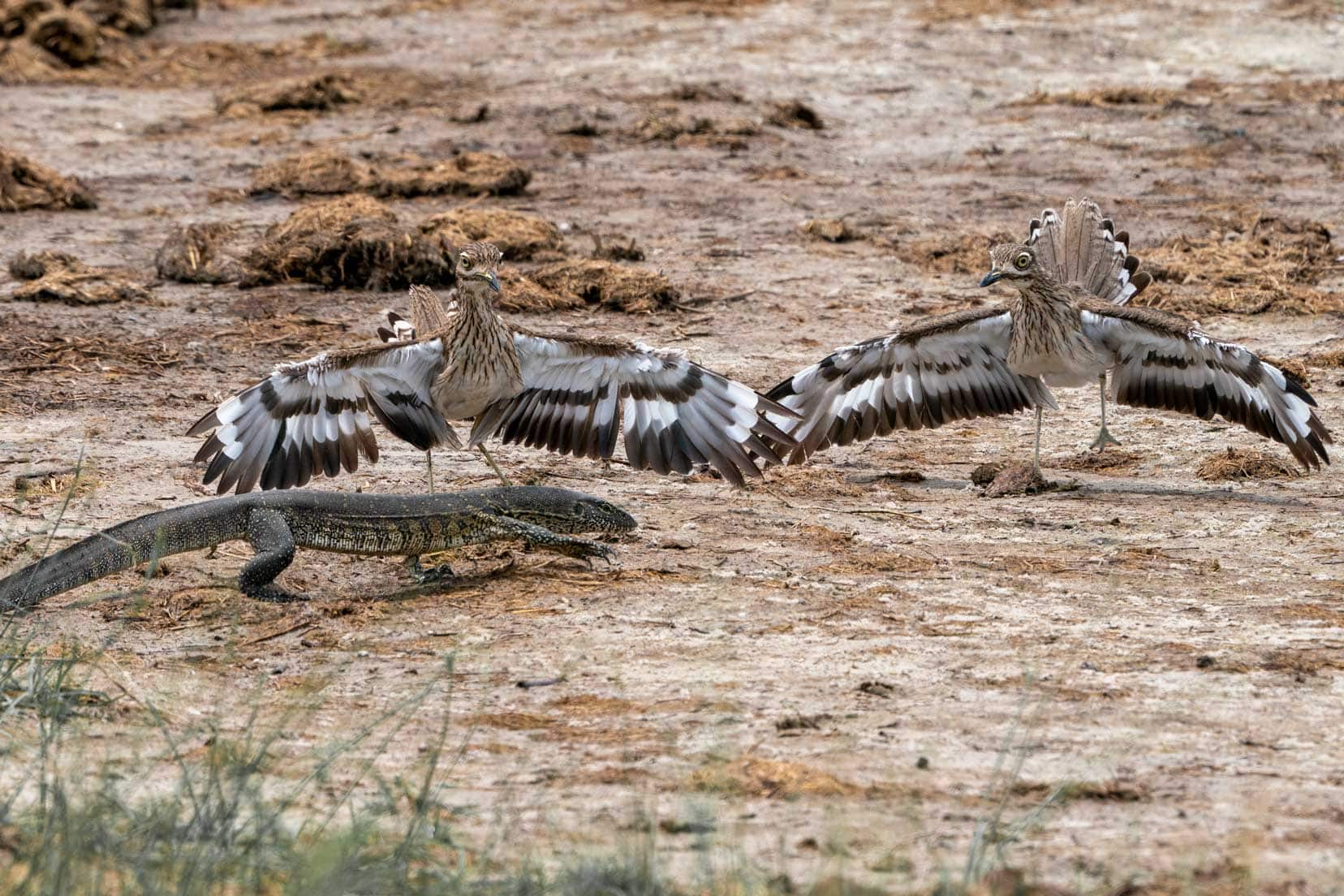
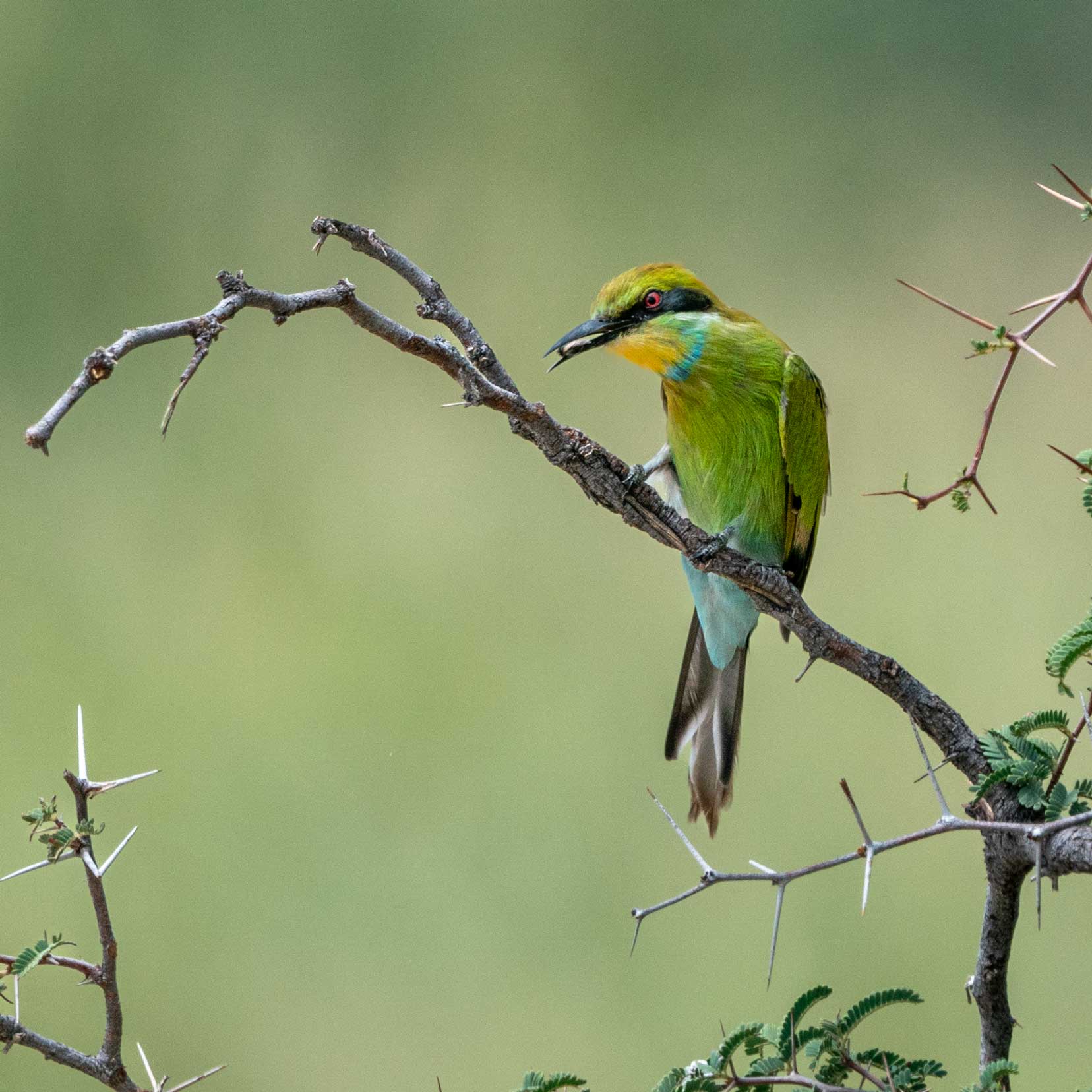
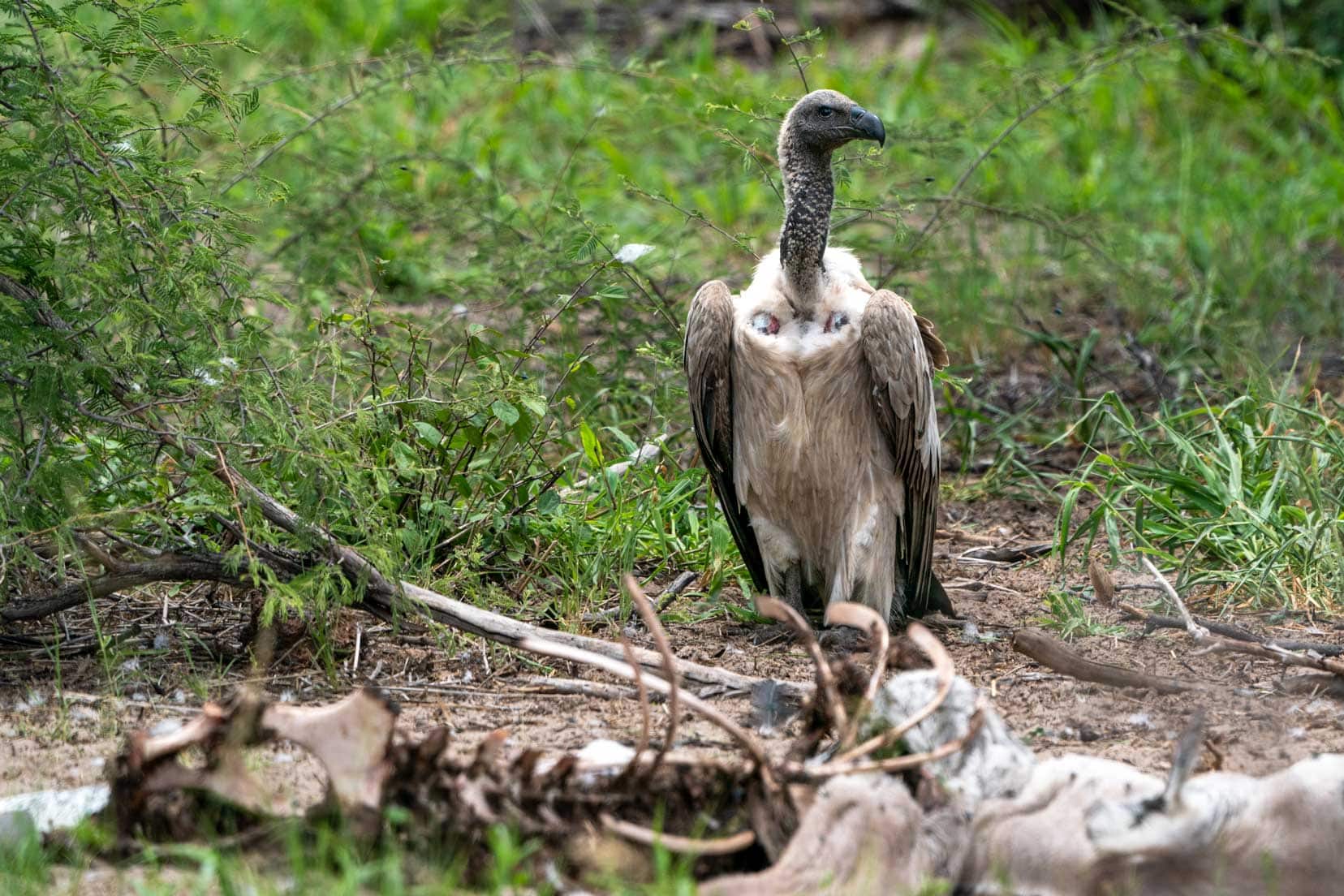
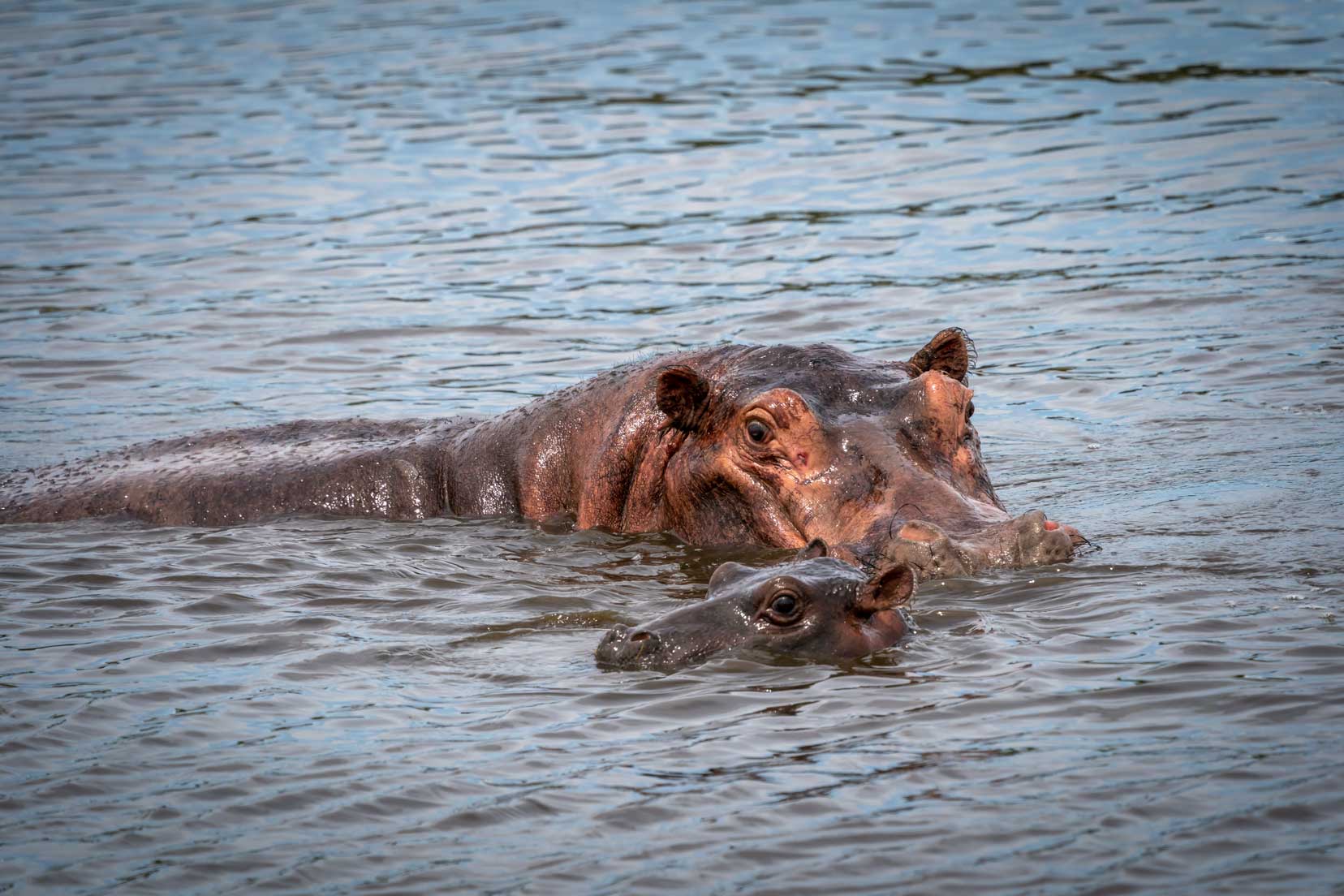
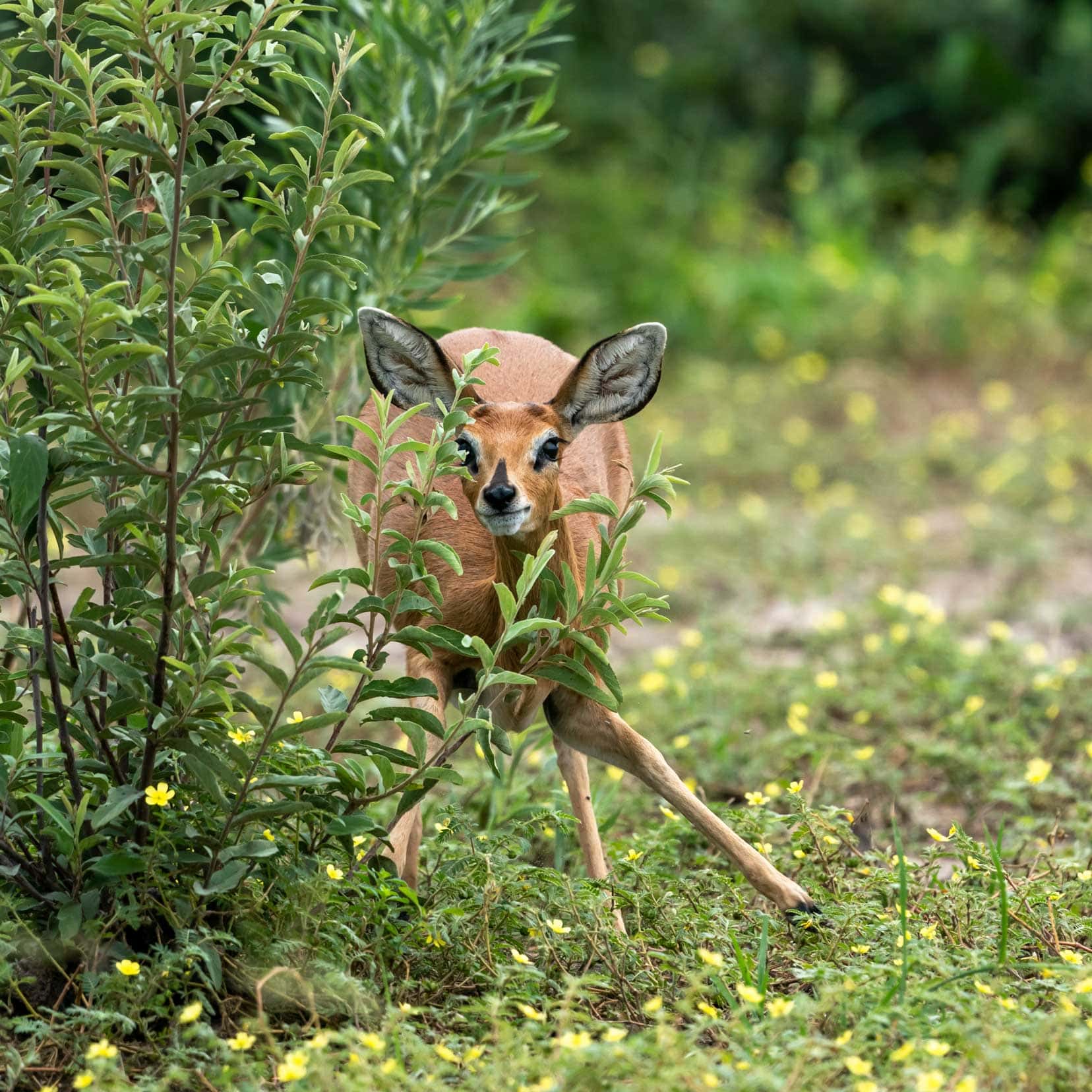
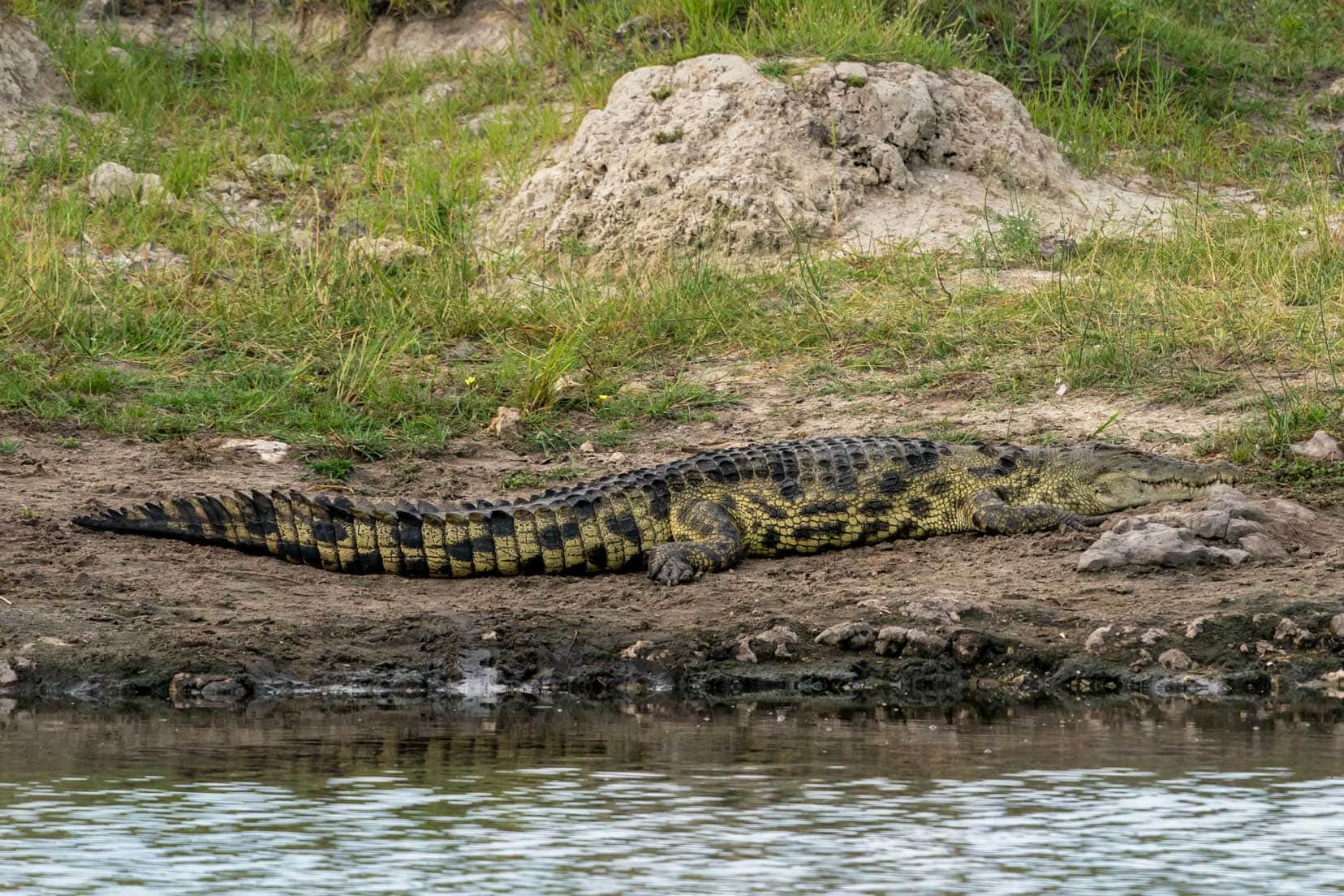
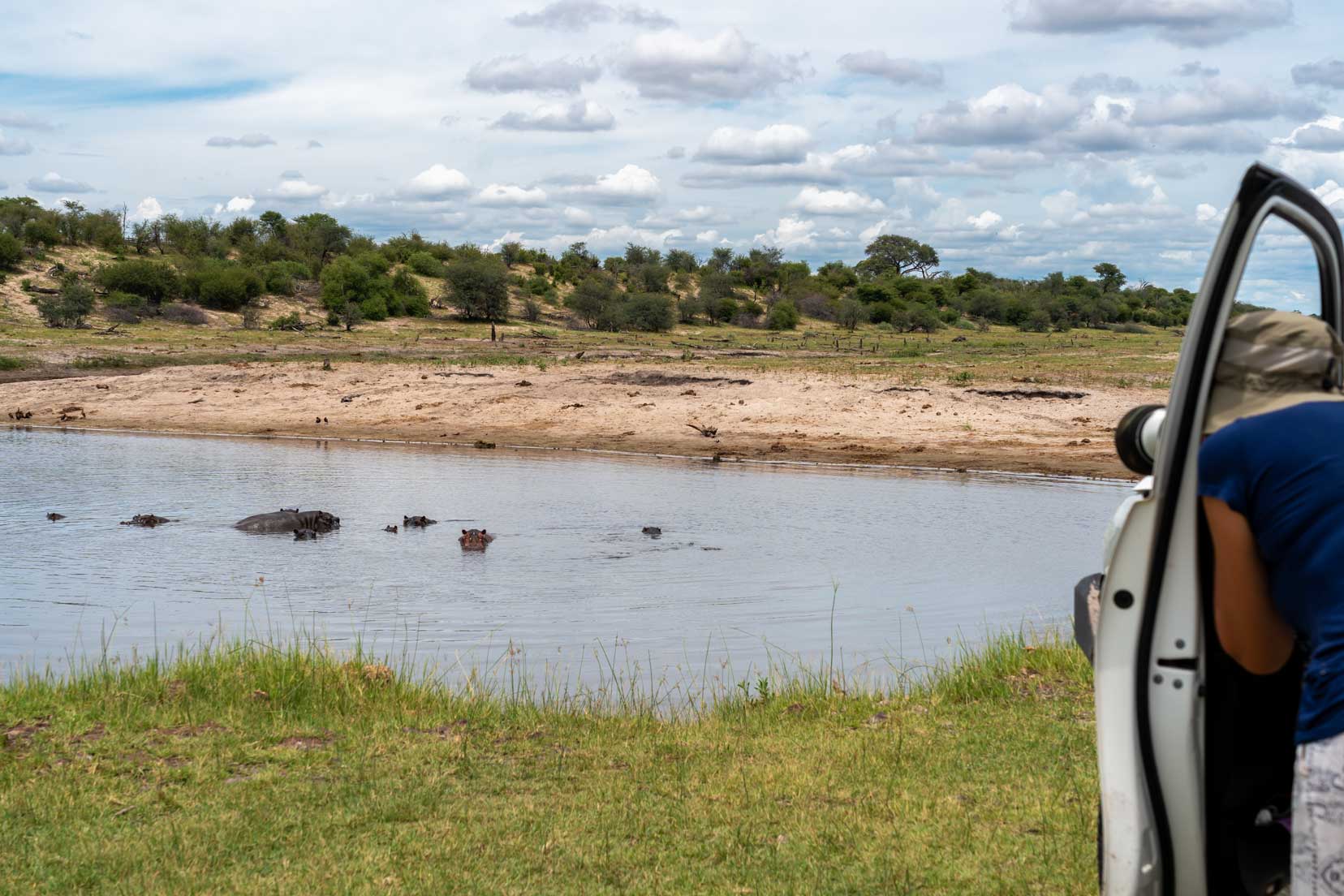
Makgadikgadi Pans National Park Fees
The Makgadikgadi Pans National Park entrance fees must be either paid at the gate in cash or can be paid beforehand at the Department of Wildlife and National Parks (DWNP). You will also need to show your camping vouchers to prove that you have a campsite booked.
The following Makgadikgadi Pan National Park Fees are correct as of January 2024:
| Citizen | BWP 20 per person per day |
| Resident/SADC National | BWP 145 per person per day |
| Non-resident | BWP 190 per person per day |
| Vehicle | BWP 75 per day |
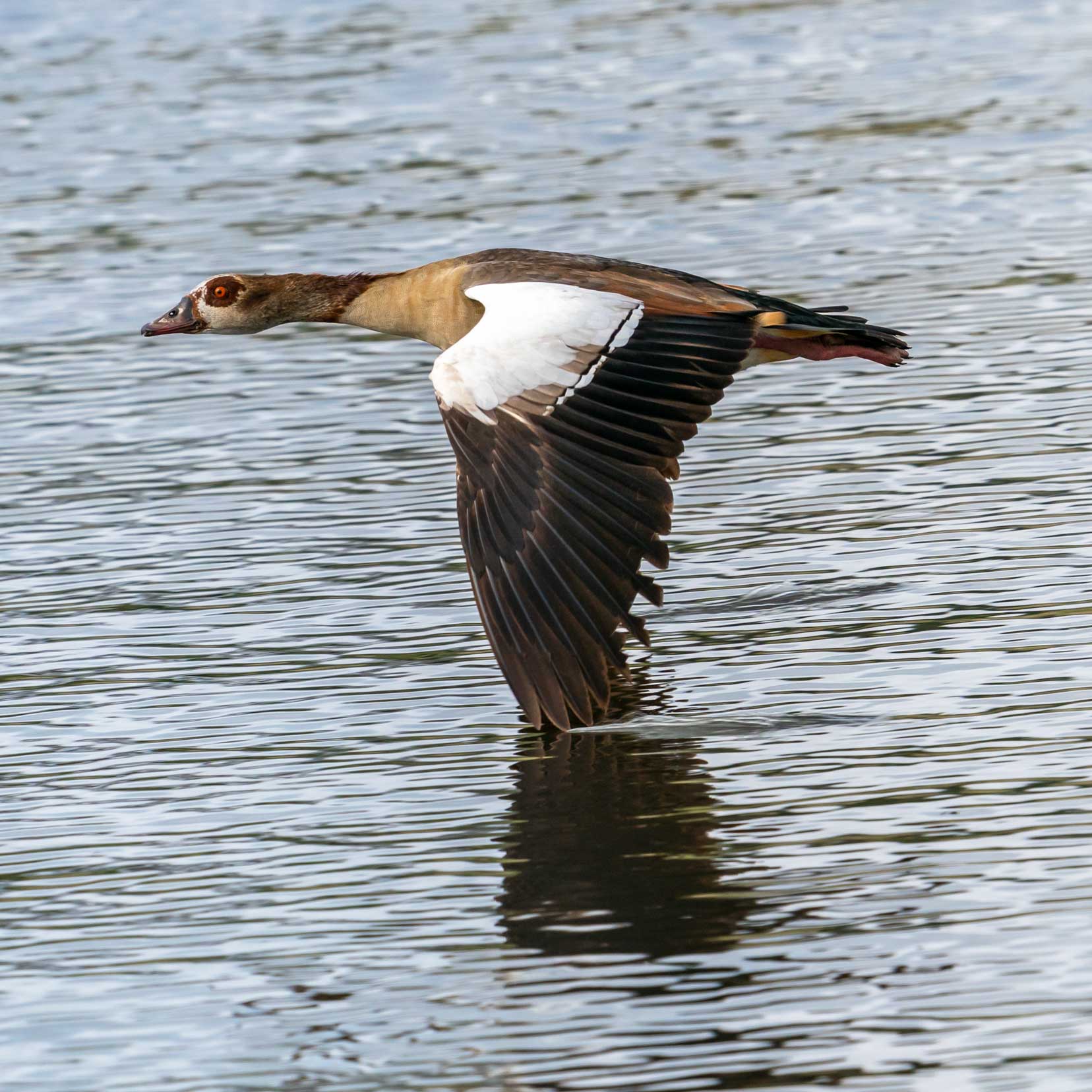
Getting to Makgadikgadi Pans National Park
There are two main entrance gates to Makgadikgadi Park:
- Phuduhudu Gate
- Khumaga Gate
💡TIP: We use paper maps to plan our route and to work out travel times and then the Tracks4Africa app en route. The GPS marker tracks our position, so as chief navigator, my job is much easier.
Phuduhudu Gate
The main entrance to Mkagadikgadi National Park is just off the A3, the main road from Maun to Nata. Watch out for wildlife along this road.
The turn-off is about 160km from Maun and about 45 kilometres west of Gweta. We saw several elephants and giraffes crossing this highway.
About 100 metres from the turn-off, you’ll come to Phuduhudu Gate (See map above).
Khumaga Gate
The other entrance to the park is further south, at Khumaga Gate. But to get to this entrance, you will need to cross the river. If the river is dry, you can drive straight across, as we did in February, but if the river is flowing, you will need to use the one-car ferry.
There is also a possibility that the river is too flooded to cross but doesn’t have enough water for the ferry to run. In that case, you’ll have to backtrack to the main road and use the Phuduhudu Gate instead.
VET Fence on Route
If you are travelling from Maun, you will pass the VET Fence border control gate on the way.
You will need to stop here, and inspectors will likely check your fridge. Due to foot and mouth disease outbreaks, you are unable to take raw meat from west to east or north to south. You will also have to place your shoes on a disinfectant pad and drive through a disinfectant trough.
Makgadikgadi Gate Opening Times
October – March: Open 5 am Close 7 pm
April – September: Opens 6 am, Closes 6.30 pm
🛏 If you will be staying in Maun, then our post on where to stay in Maun will help you choose the right accommodation for you. We’ve stayed in five of the places on the list!
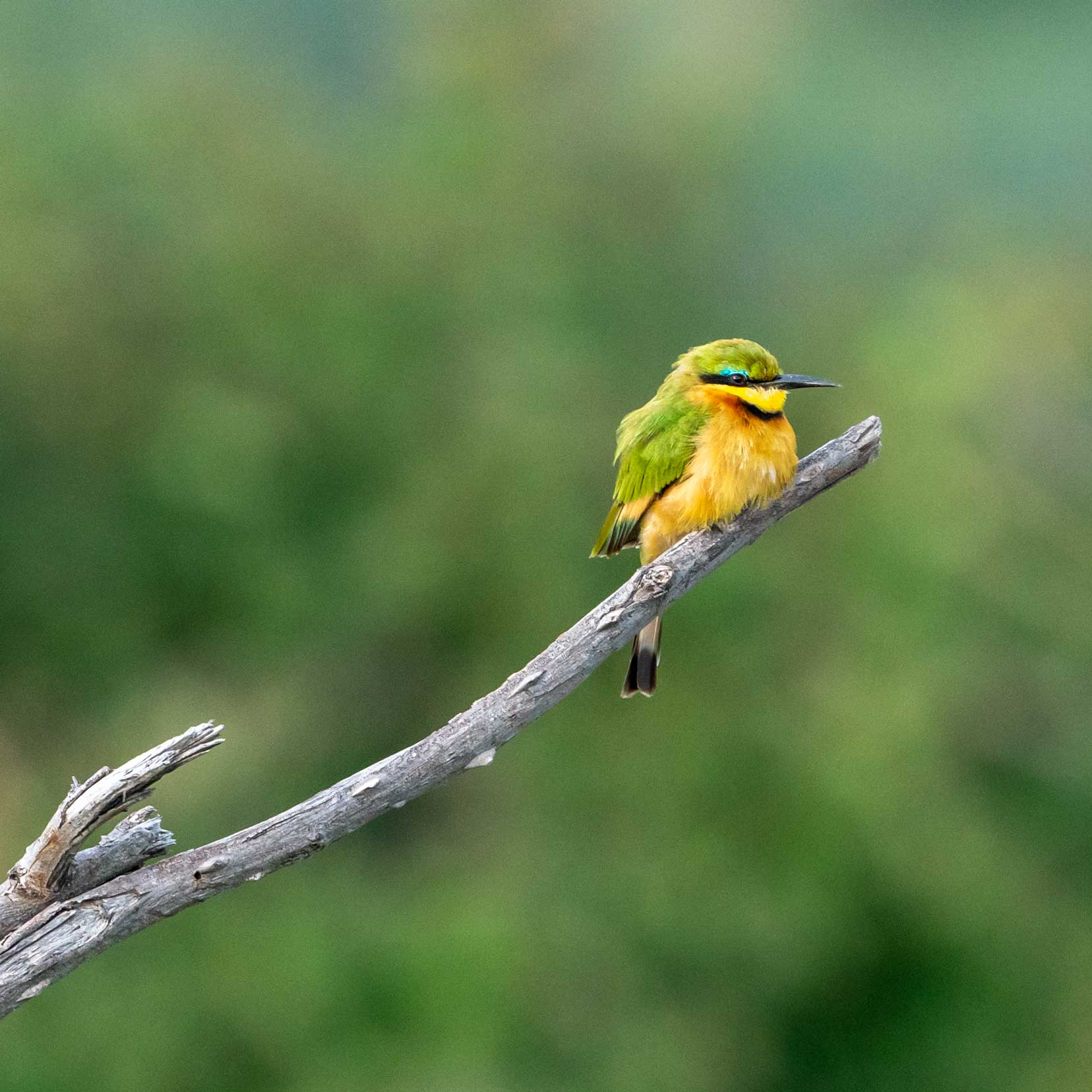
Driving in Makgadikgadi National Park
It is essential to have a 4×4 when driving in the Makgadikgadi National Park. This is because the roads within the park are rough, with many areas of deep sand – particularly on the banks by the river.
As you drive along, watch out for road tortoises and Sand Grouse that like to rest in the sandy tracks.
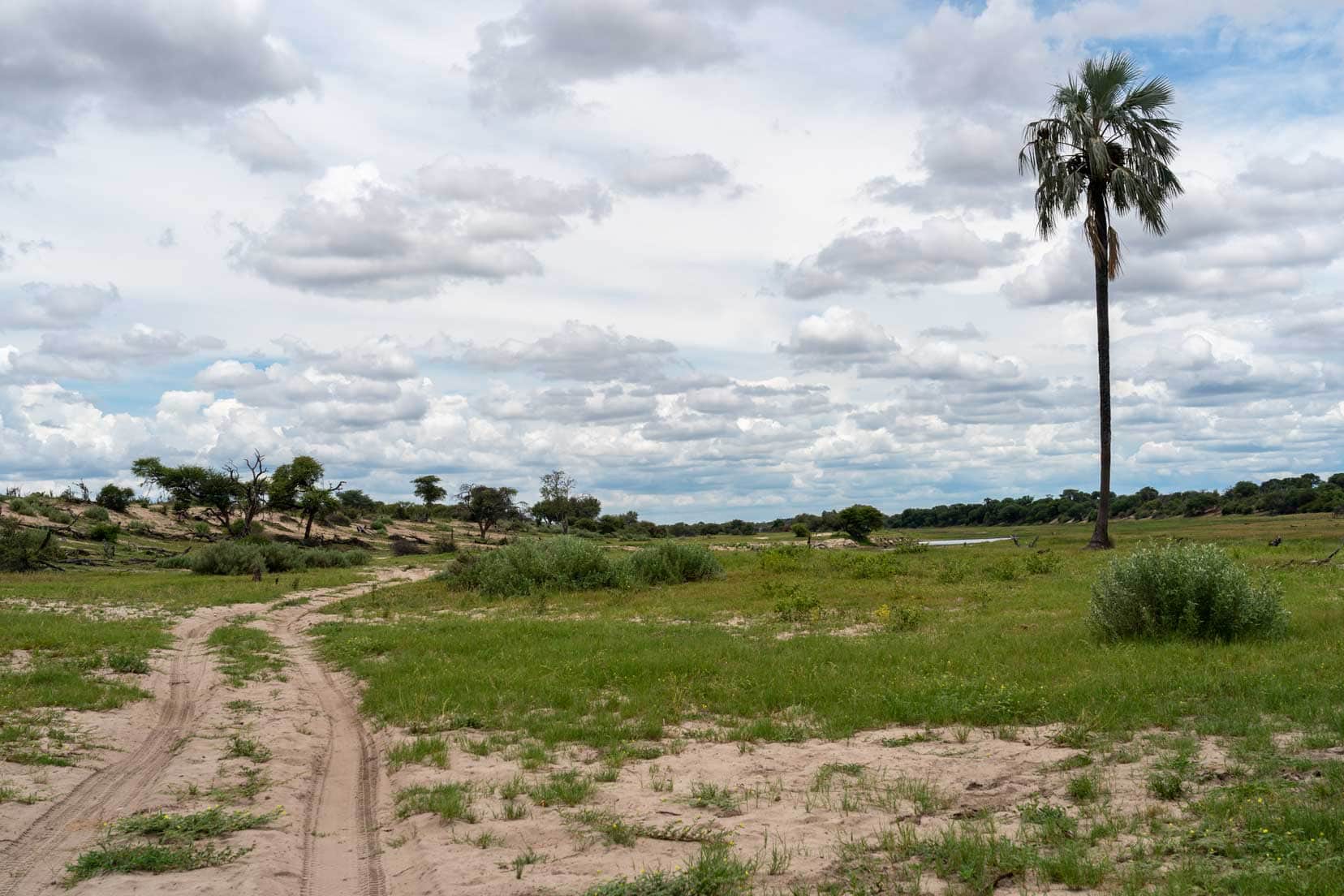
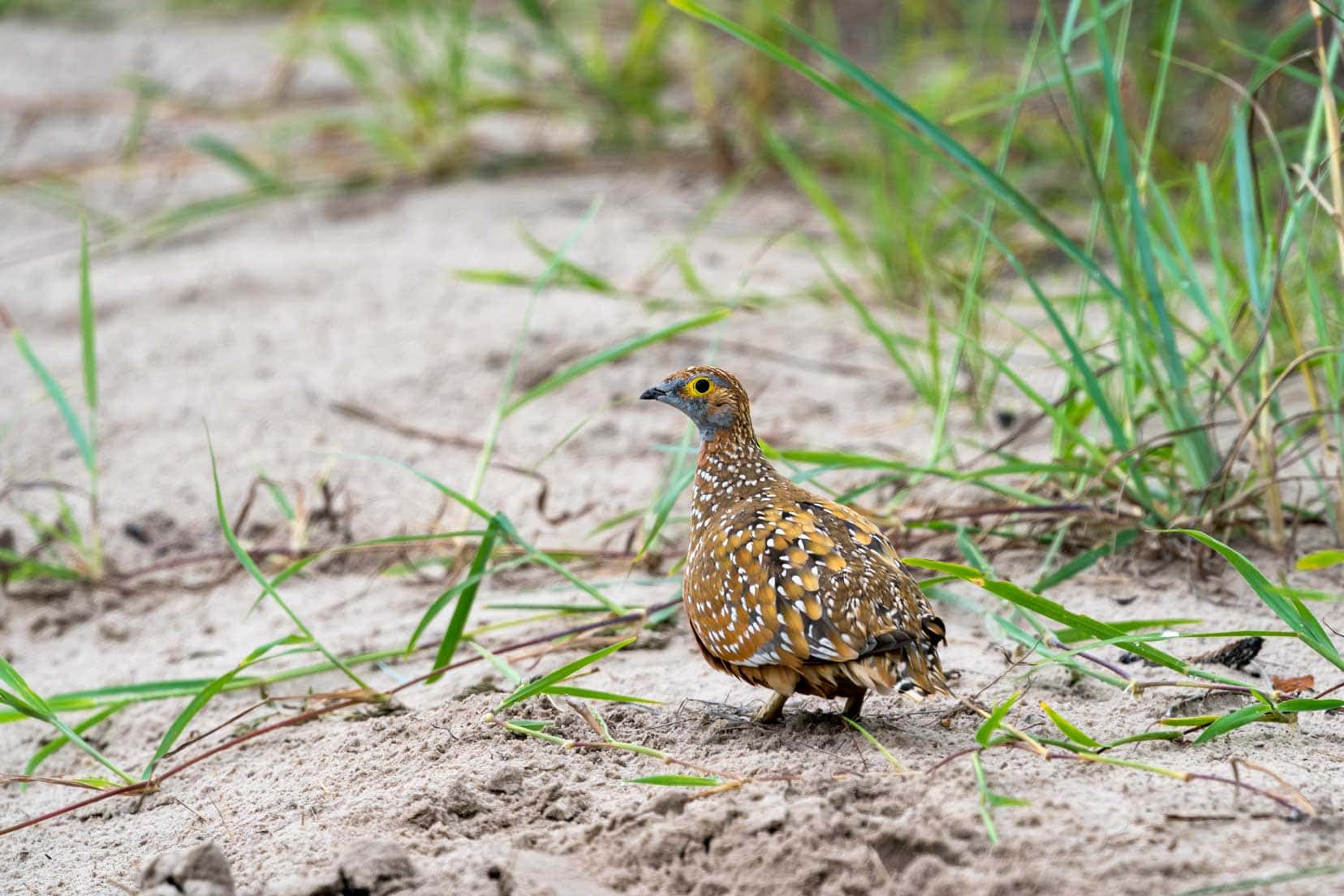
🚐 Thinking of Hiring a Camper in Botswana?
We recommend using Motorhome Republic to find you the best deal – they search all the local reputable African rental companies, including the most popular (we’ve seen them everywhere here), Avis and Britz
They do all the hard work for you and have a PRICE BEAT GUARANTEE
Camping in Makgadikgadi Pans National Park … That’s a Wrap
Camping in Makgadikgadi Pans National Park offers a unique and immersive wildlife experience, and we hope that the info here will help when you visit Makgadikgadi.
One of the main benefits is the freedom and flexibility it provides. By camping, you can stay overnight in the heart of the park and fully appreciate the serene beauty of the surroundings whilst being surrounded by wildlife.
Moreover, camping and safari driving in the park offer a chance to witness the breathtaking salt pans, one of the world’s largest.
Exploring the vast open spaces, being able to witness the incredible zebra and wildebeest migration and stunning sunsets are just some of the unforgettable experiences camping in Makgadikgadi Pans National Park has to offer.
Pin and Save for Later
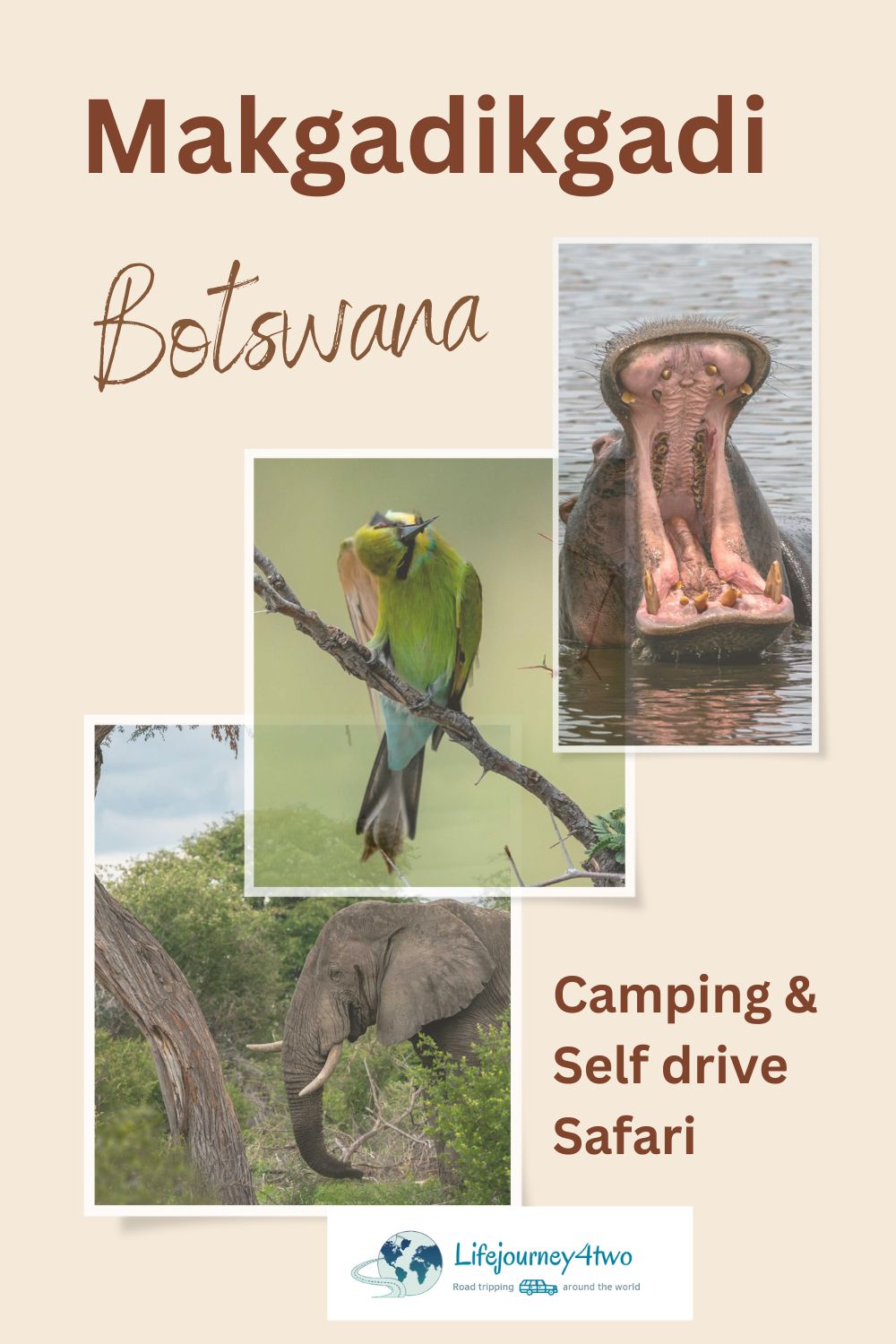
You May Also Like to Read:
Planning Your Travels?
These are the travel resources we recommend and use when planning our trips.
- 🚘 Car Hire: We use DiscoverCars.com
- Motorhome/Campervan Rental: We highly recommend the Motorhome Republic
- 🪪 Order your International Driver’s Licence online here
- 🛏 Book Accommodation: We use Booking.com to find accommodation that suits our budget
- 🐶 Pet Sitting/Pet Sitters: Check Out TrustedHousesitters here (Use our Discount code: LIFEJOURNEY25 for 25% off. )
- Activities and Experiences: Get Your Guide and Viator
- Travel Insurance: Safetywing or World Nomads
- 🥾 Travel Gear and Accessories: Check out our top picks here — Lifejourney4two page on Amazon
For a more thorough list, visit our Travel Resources page here.

